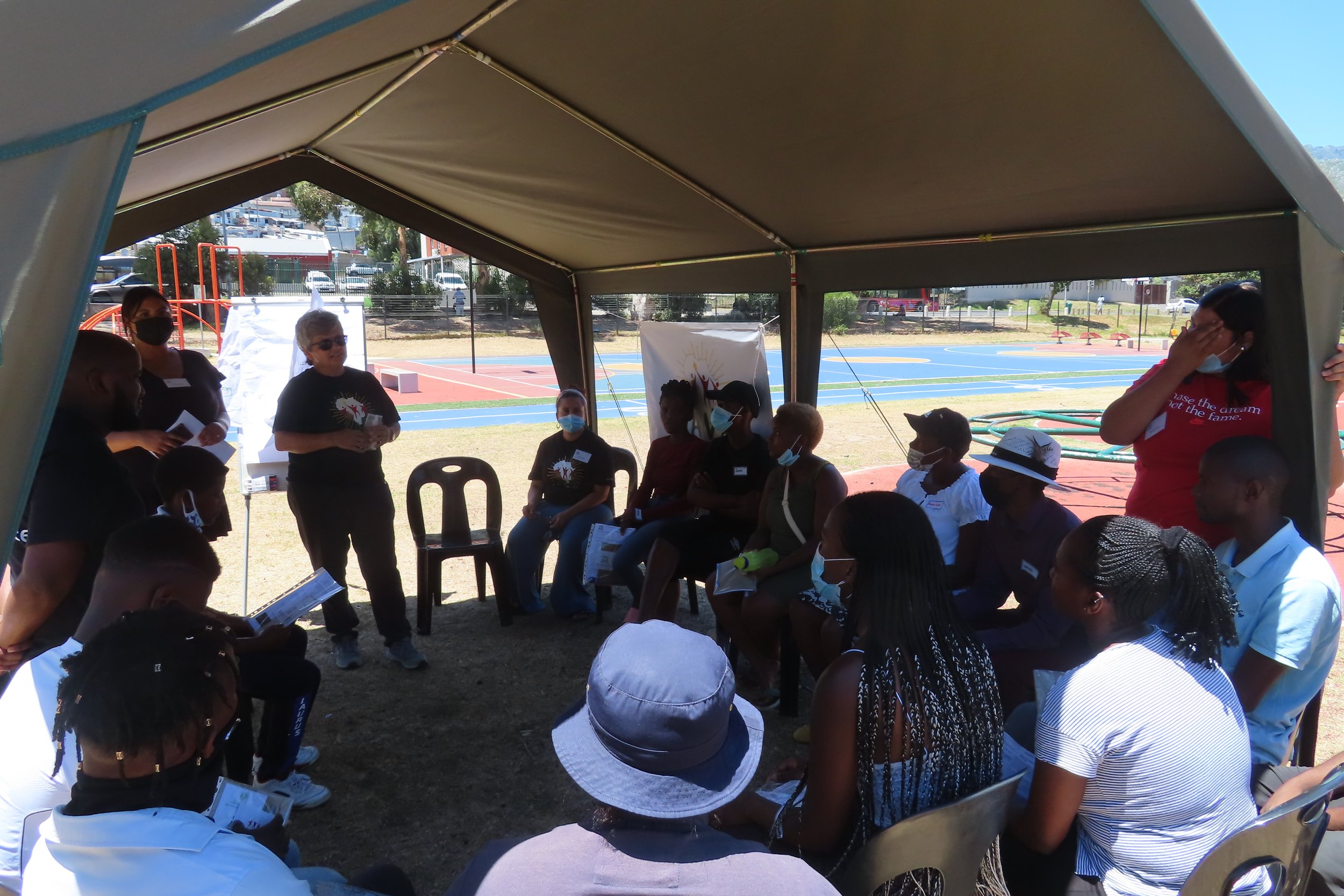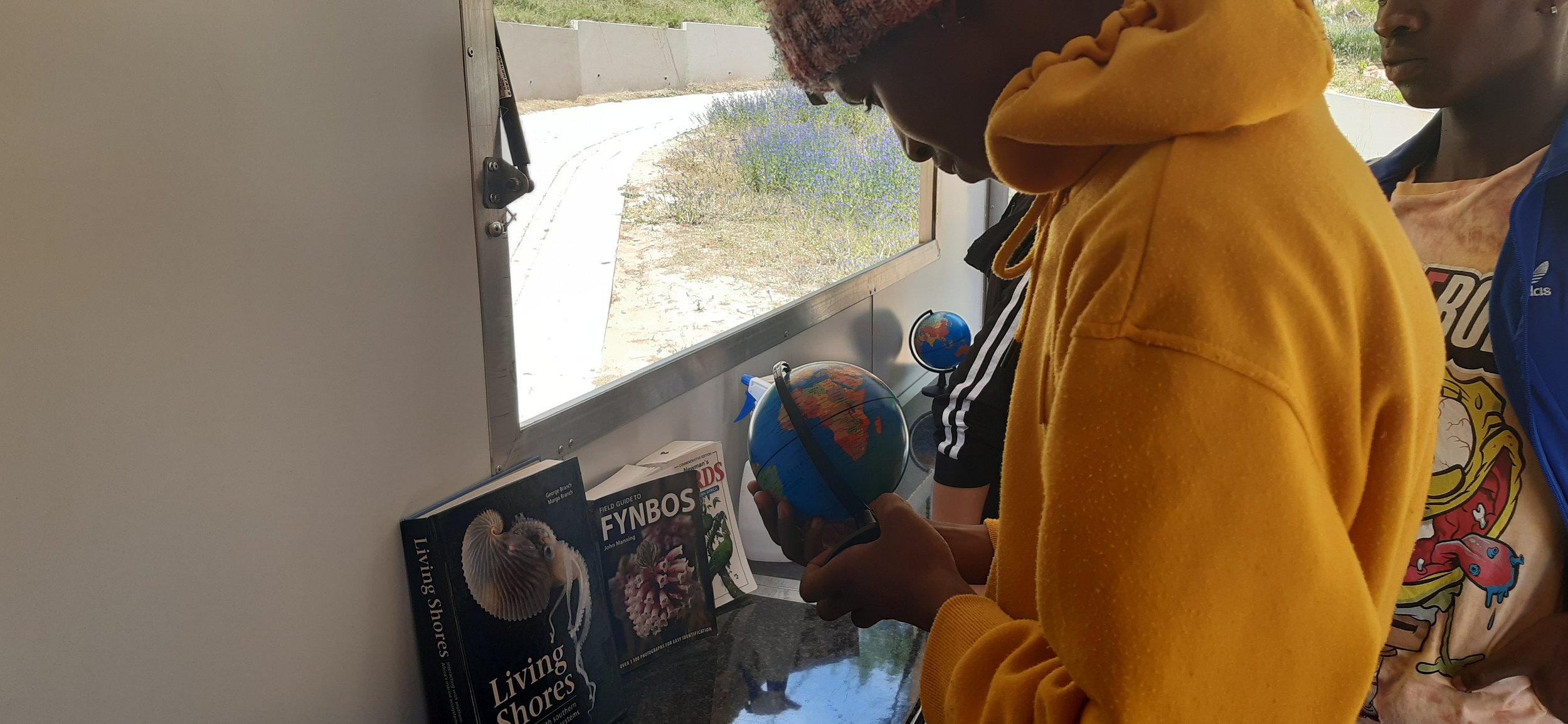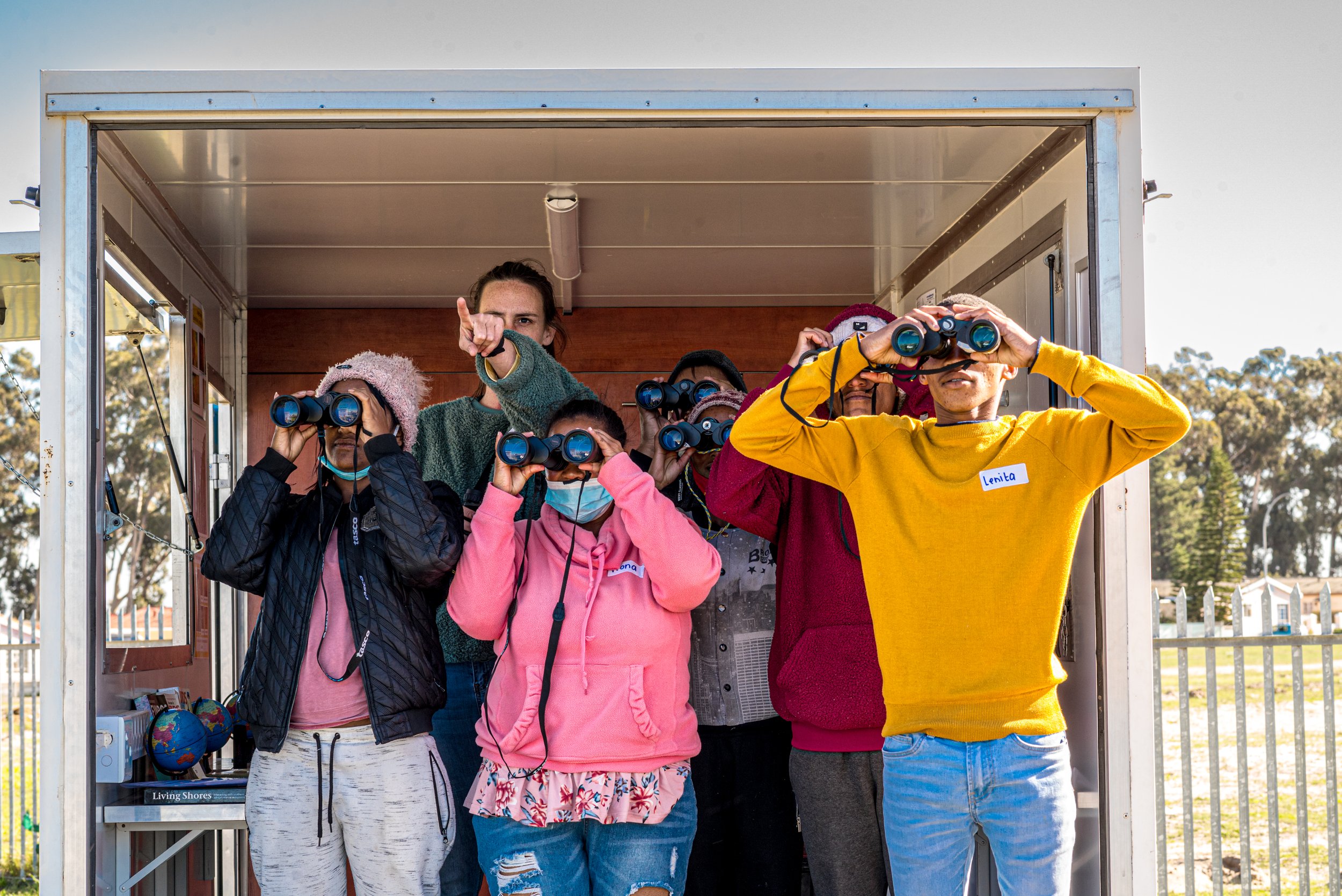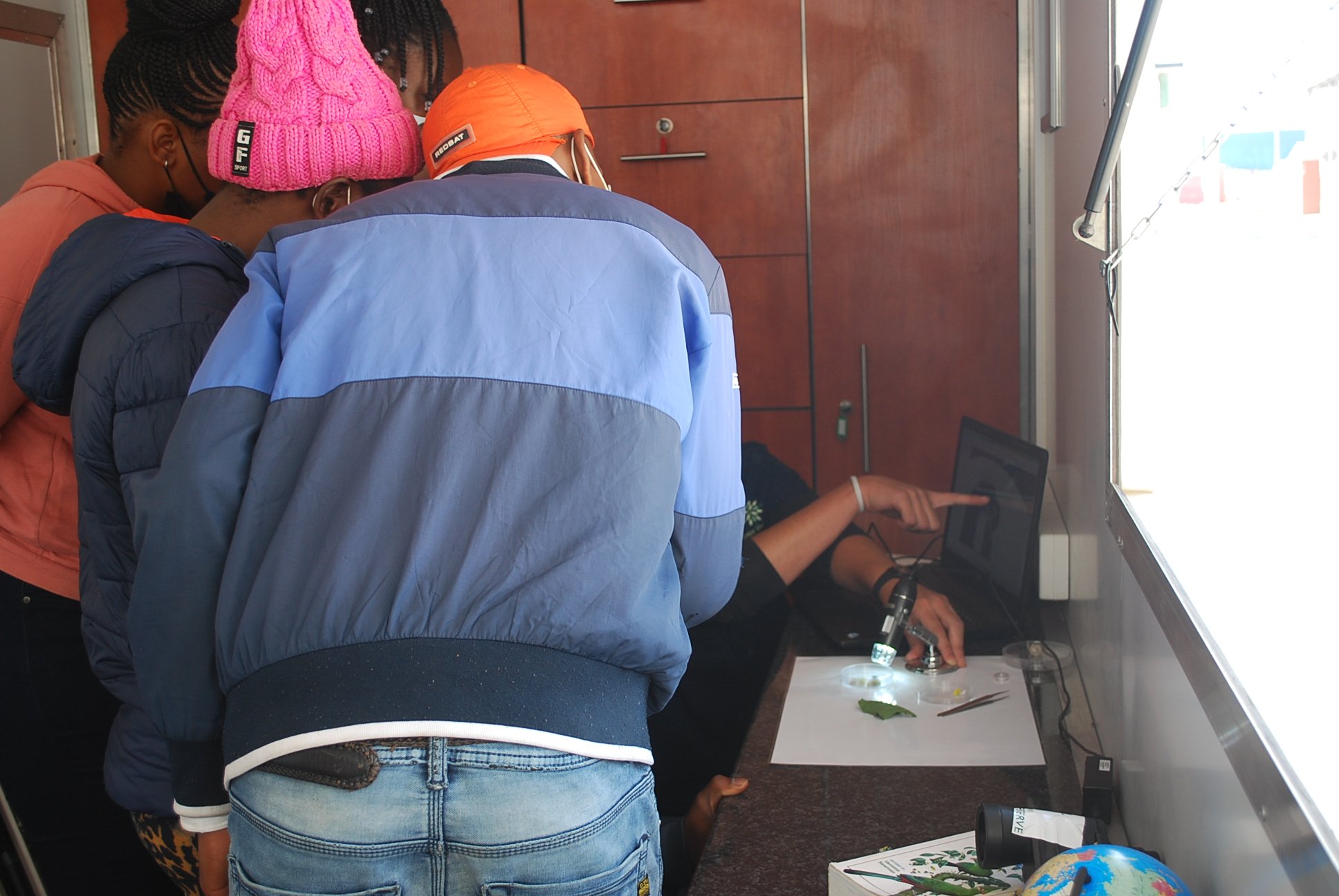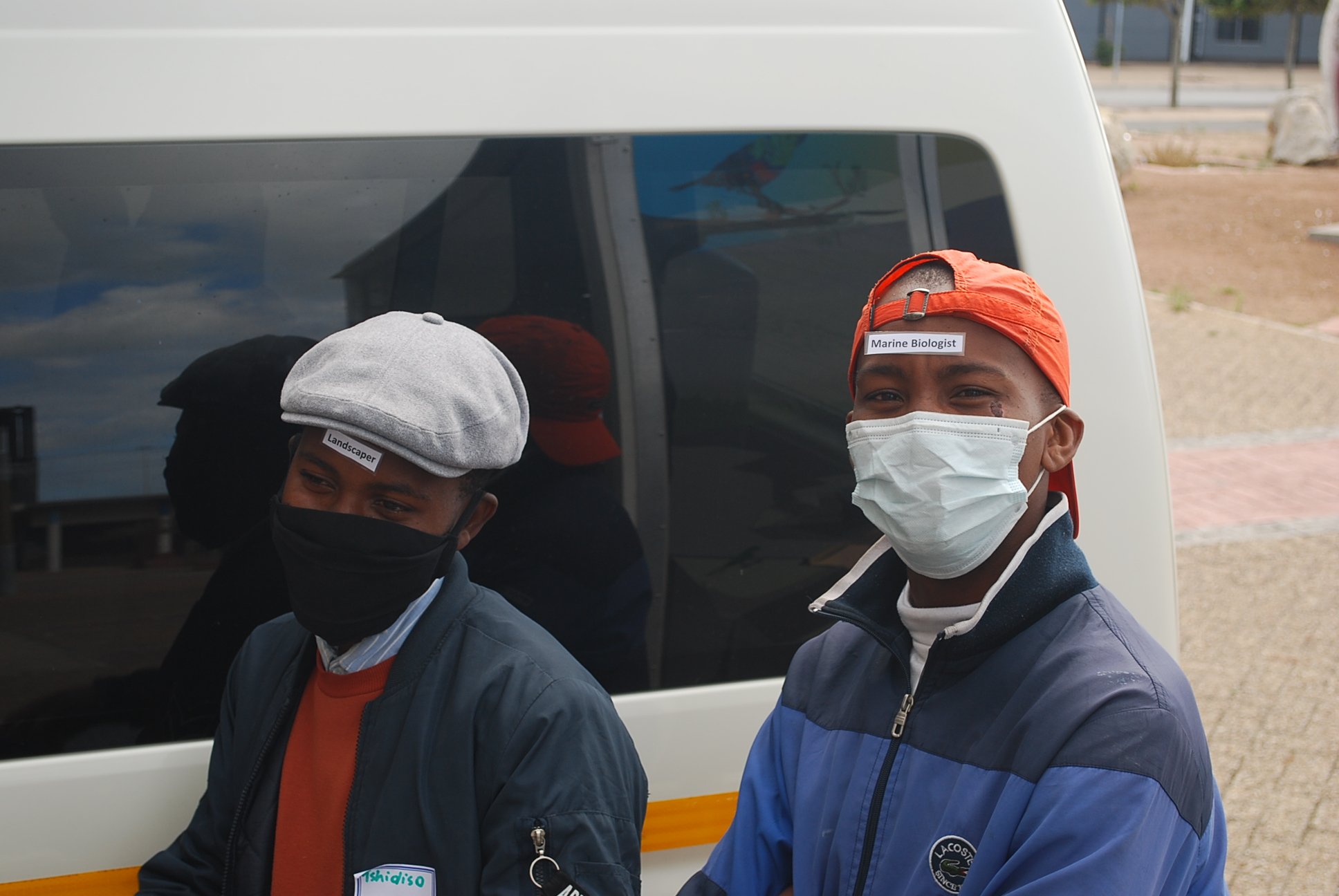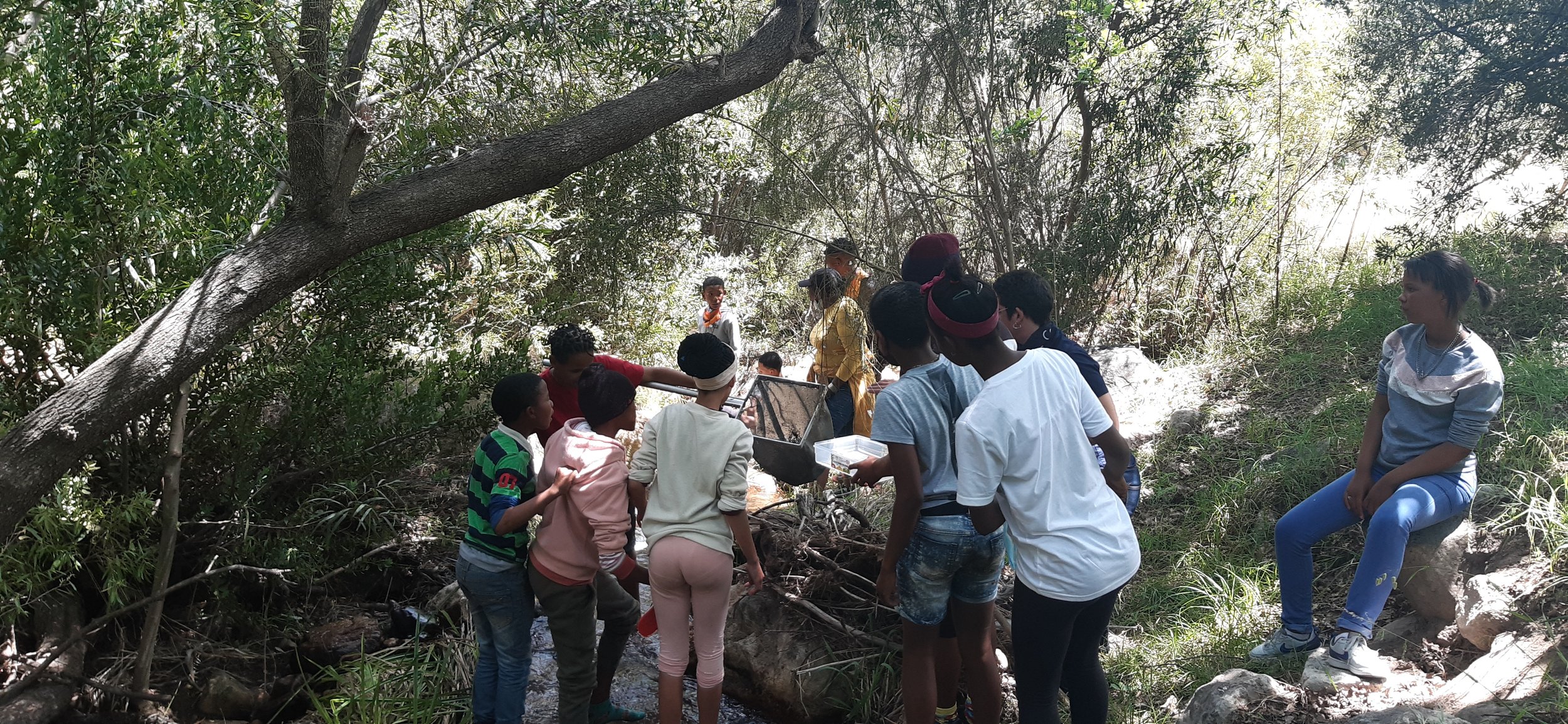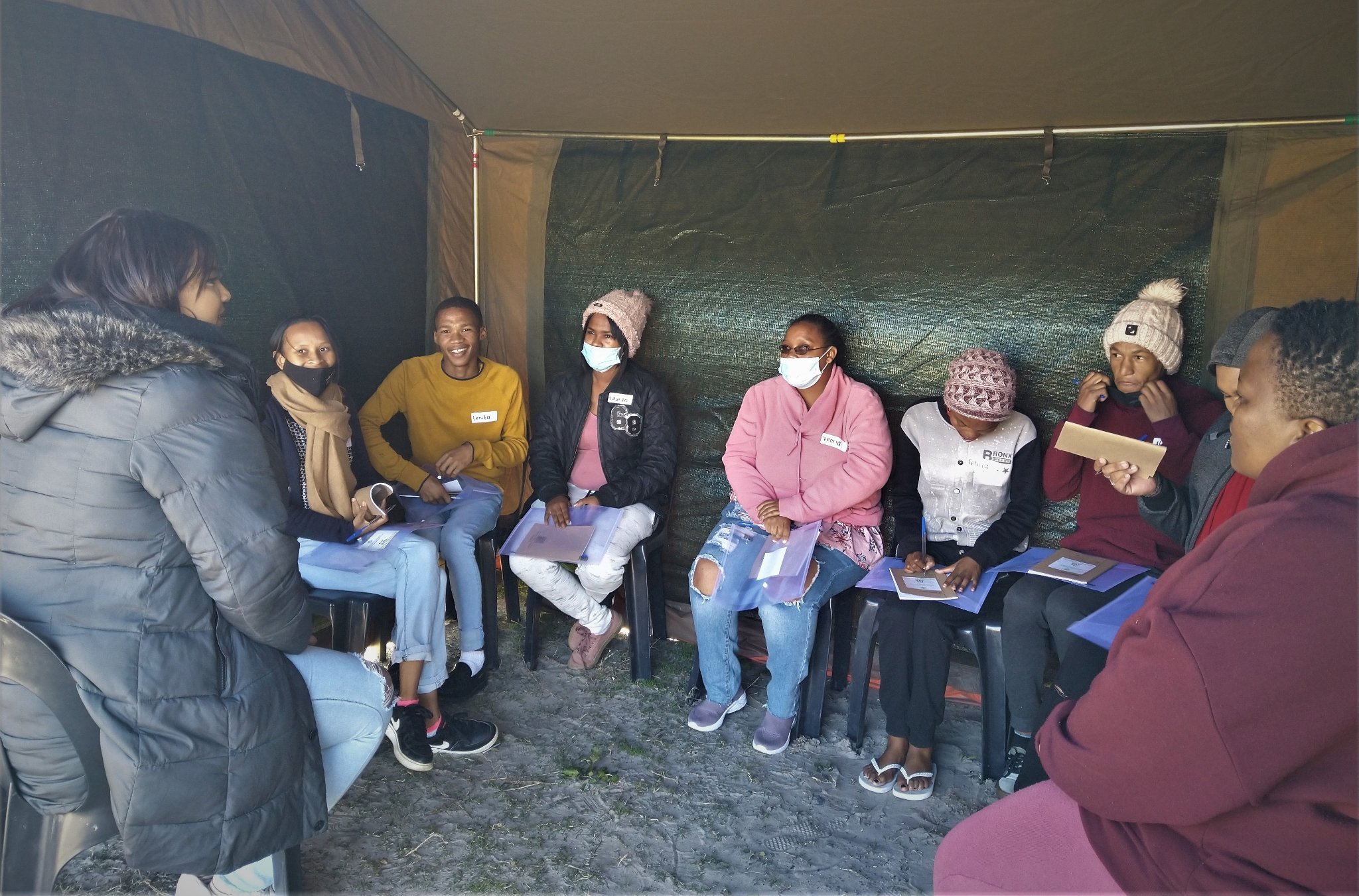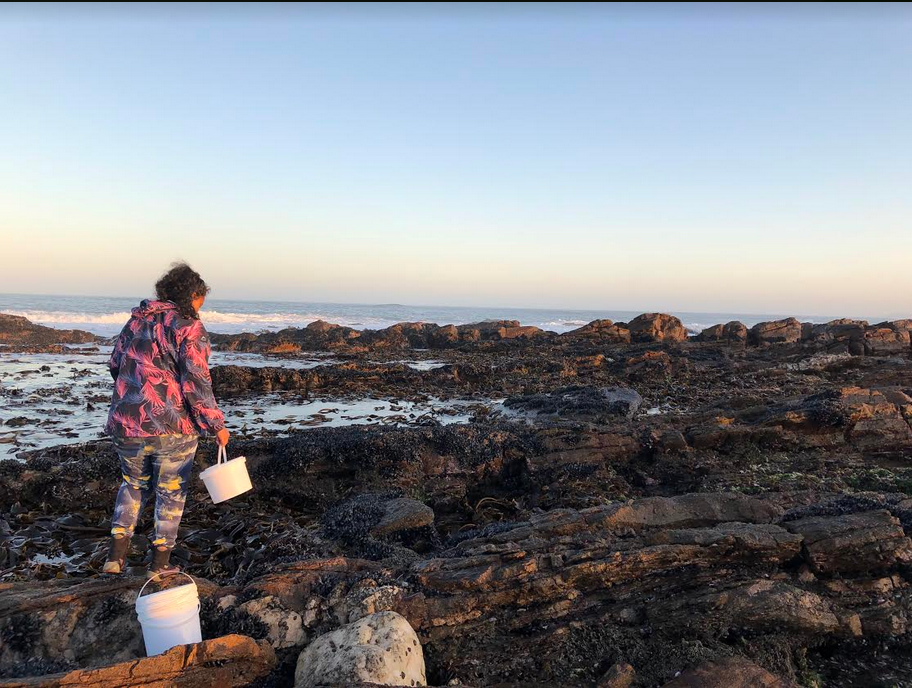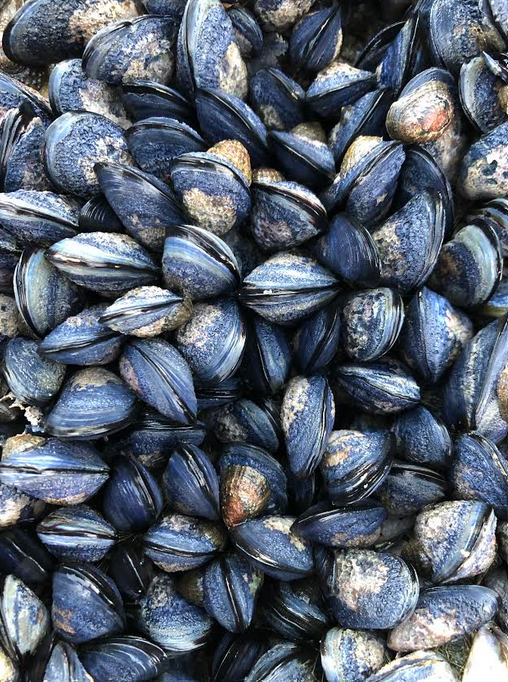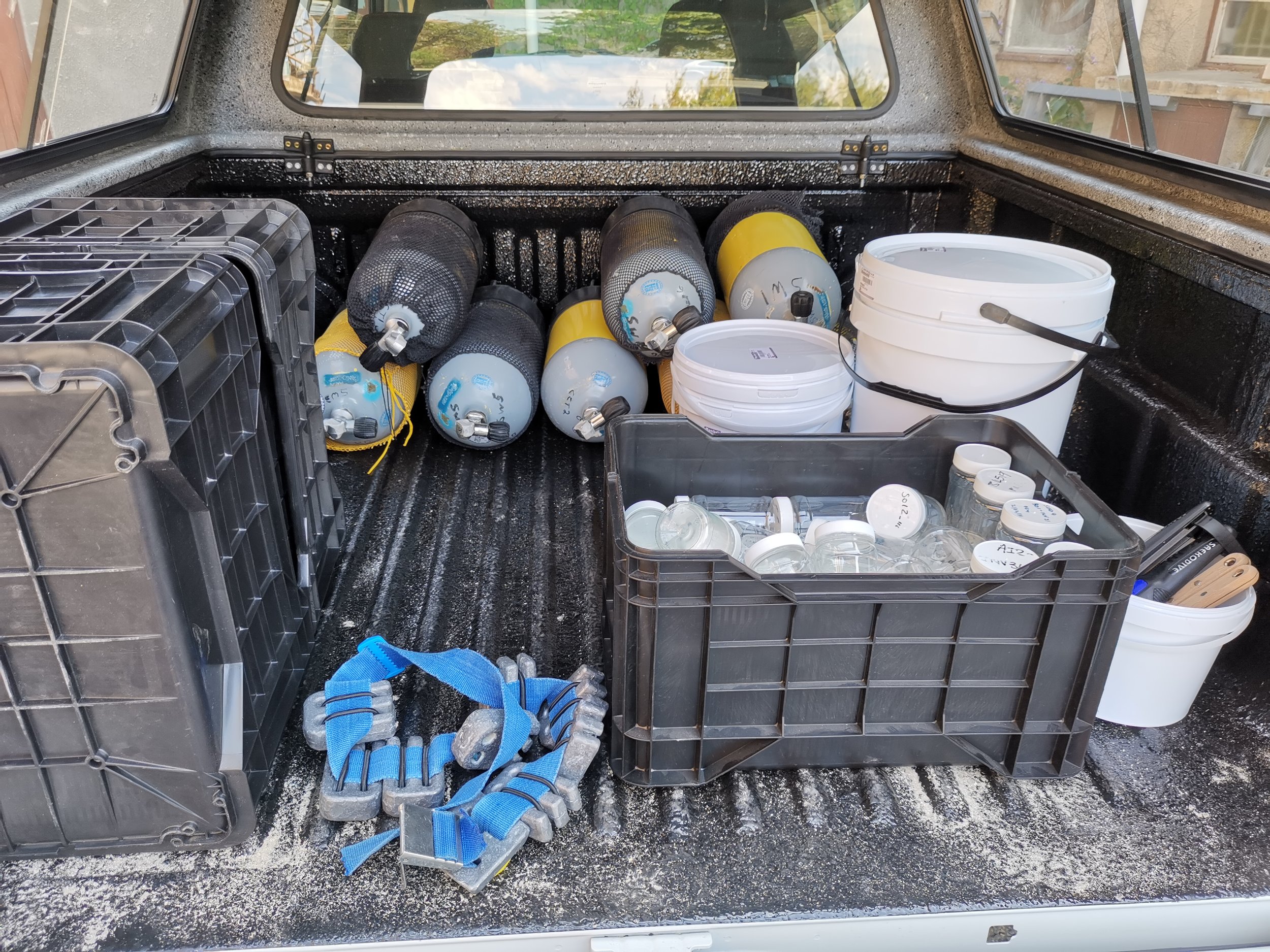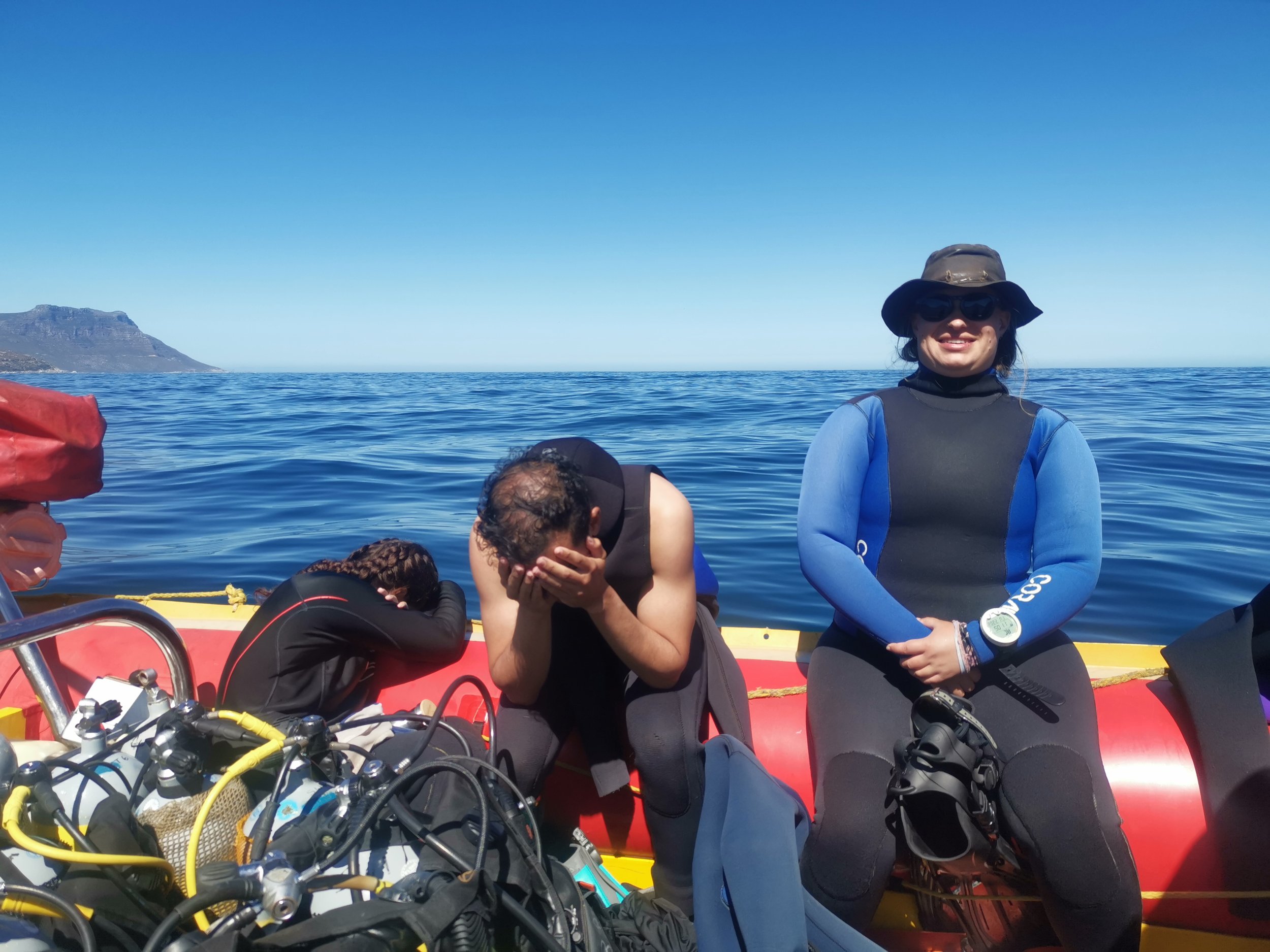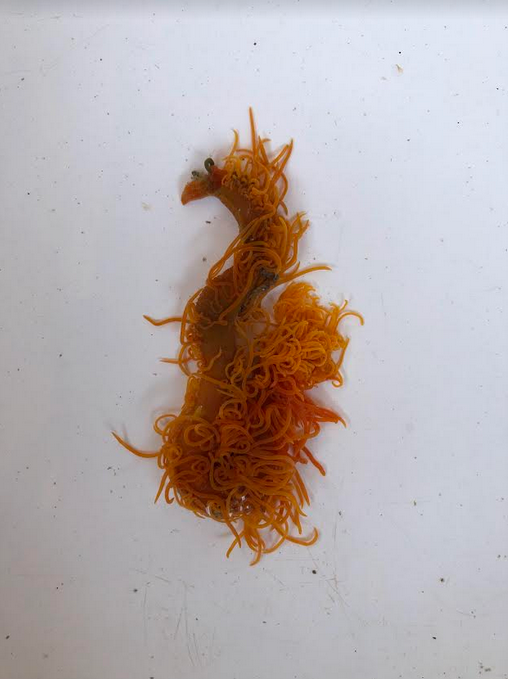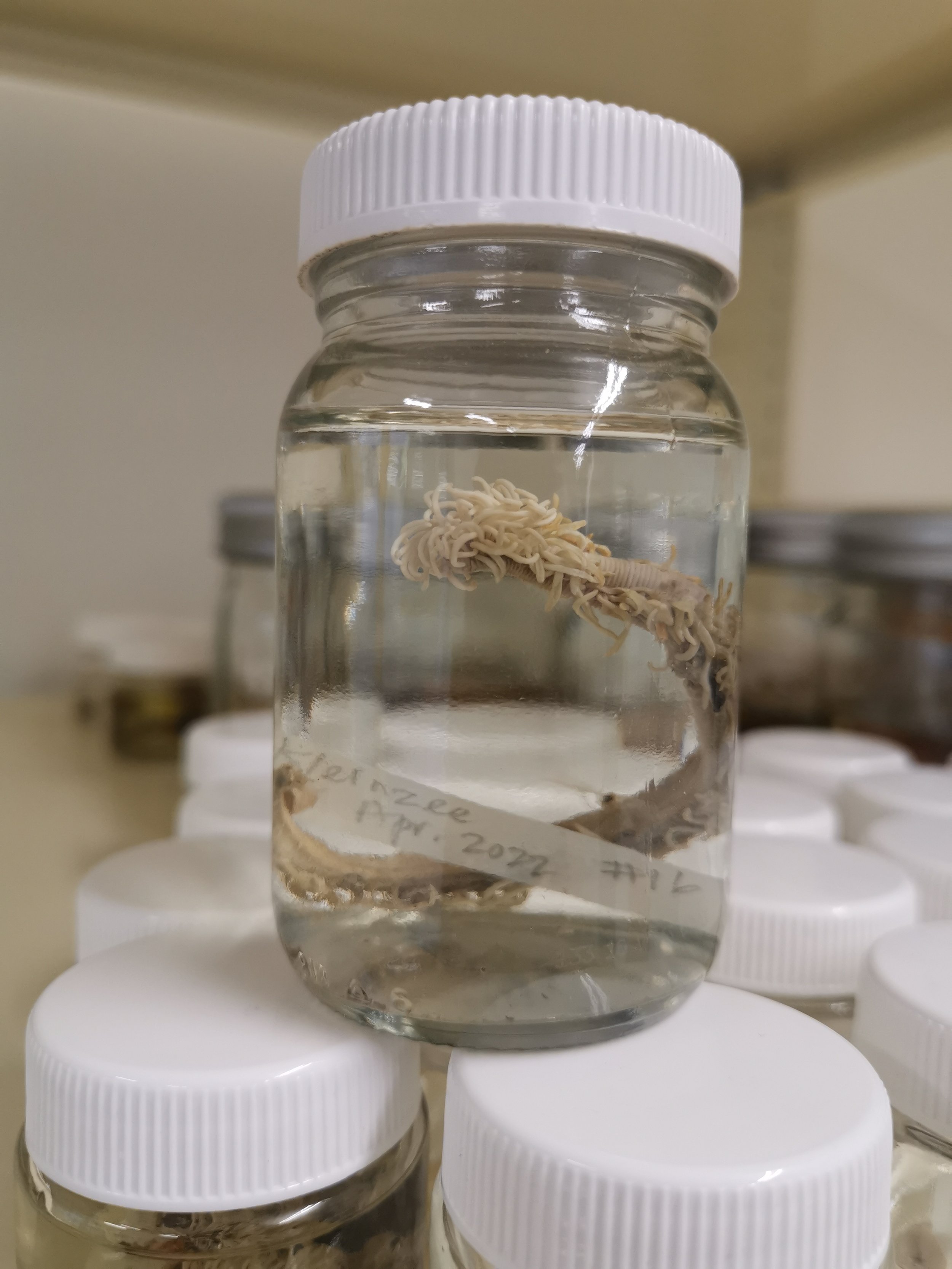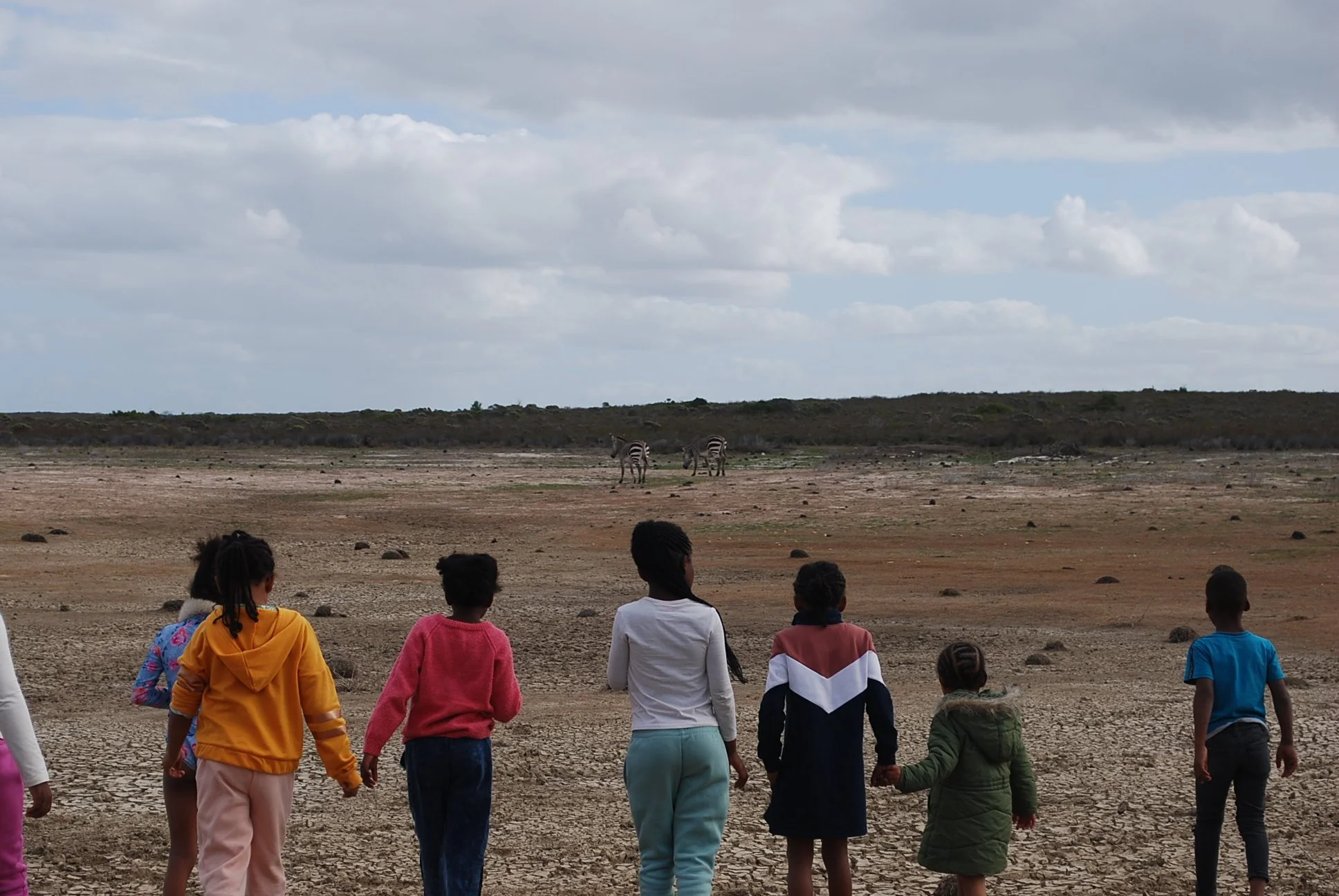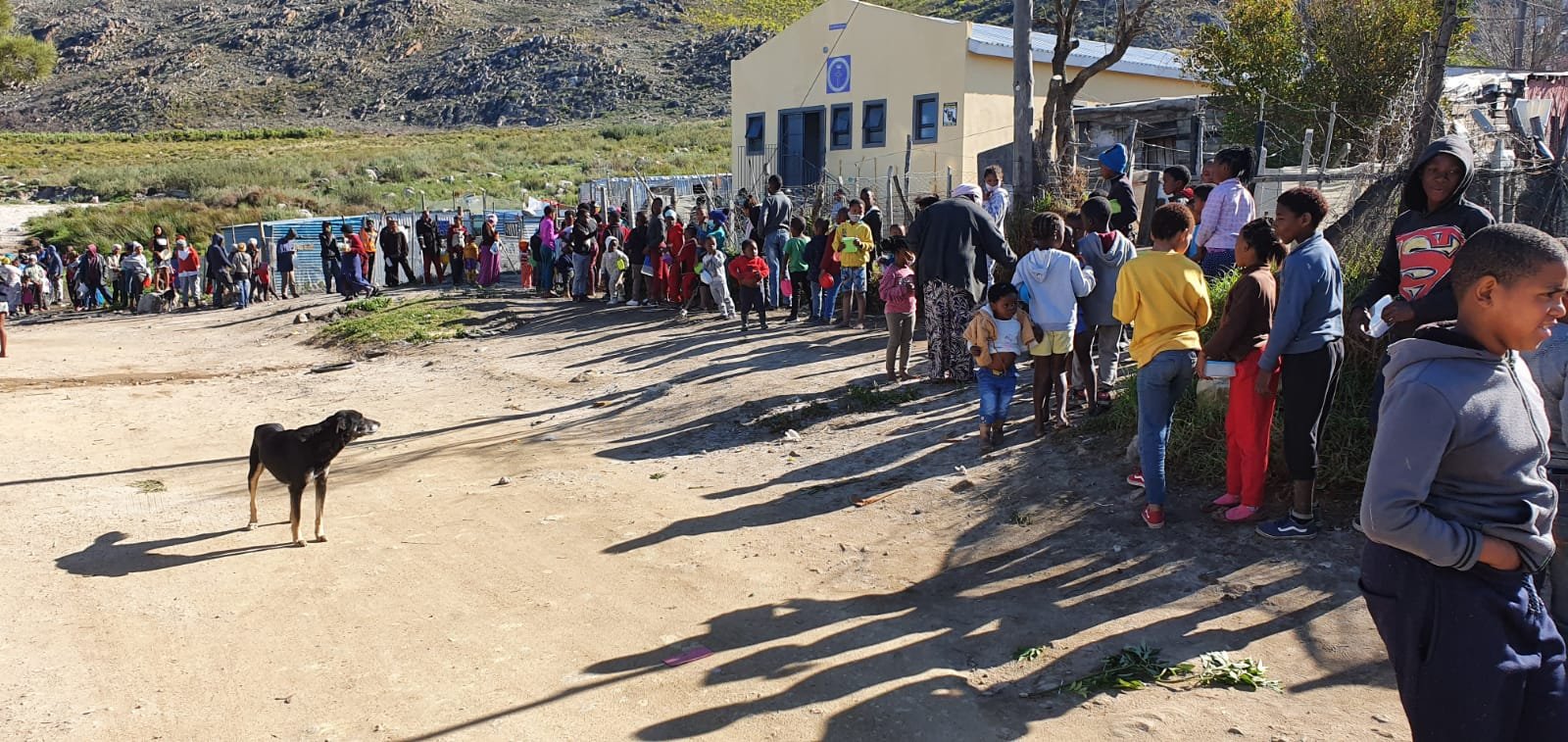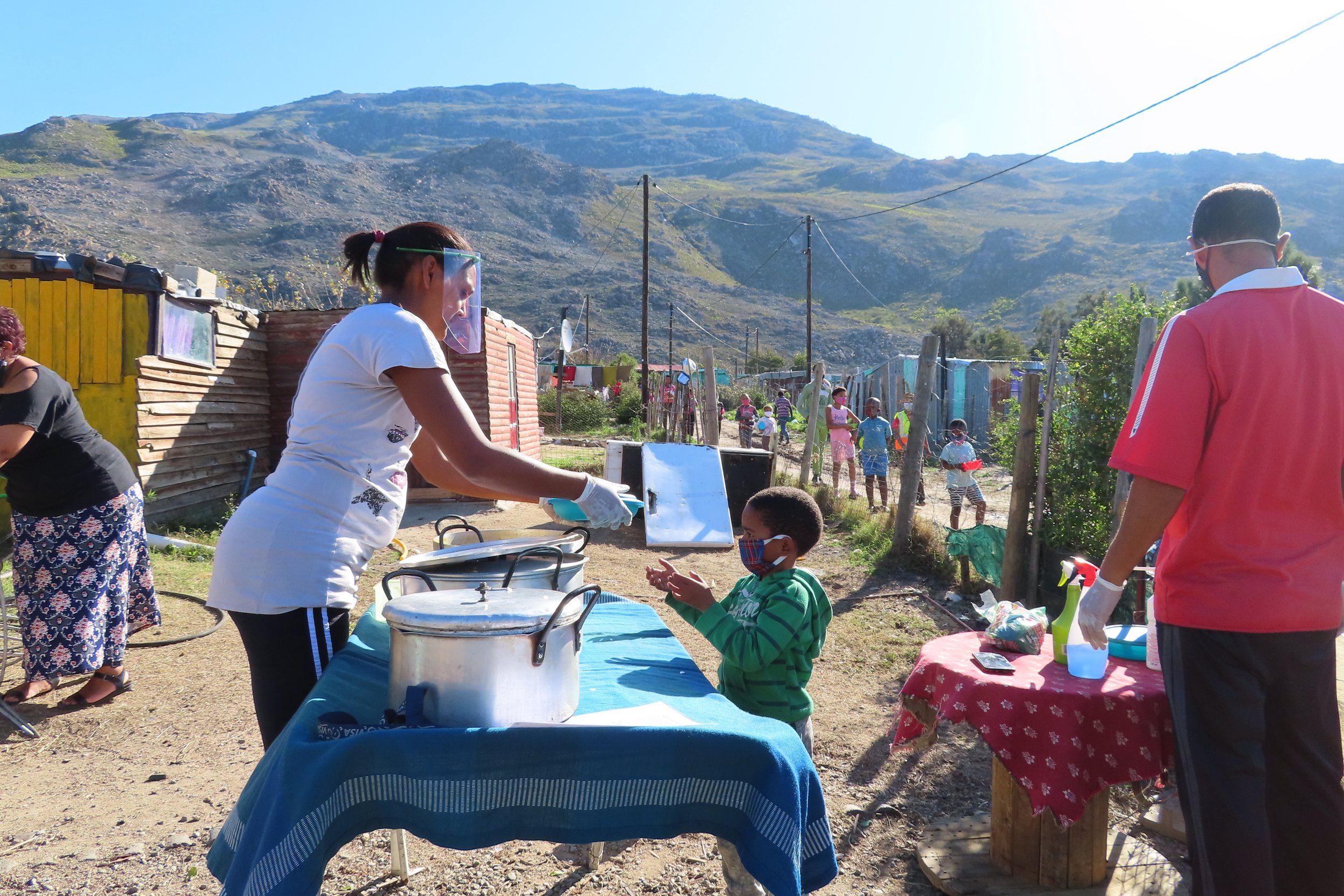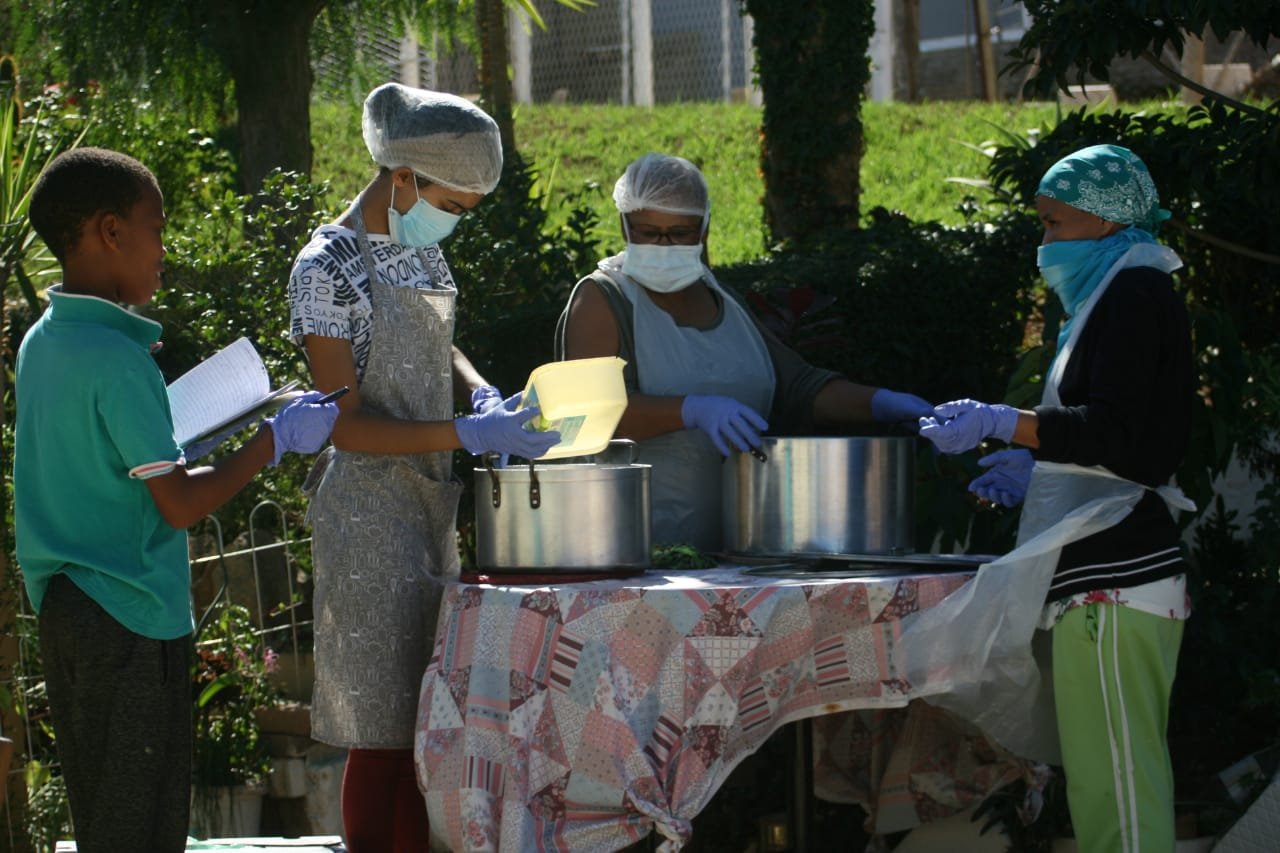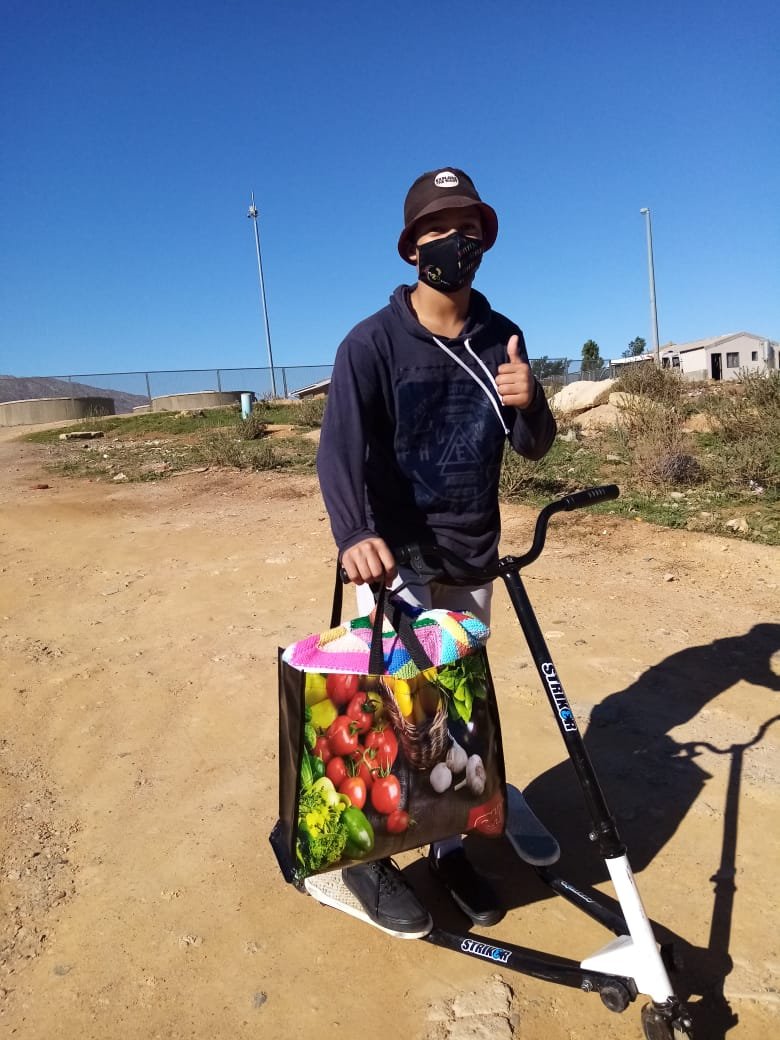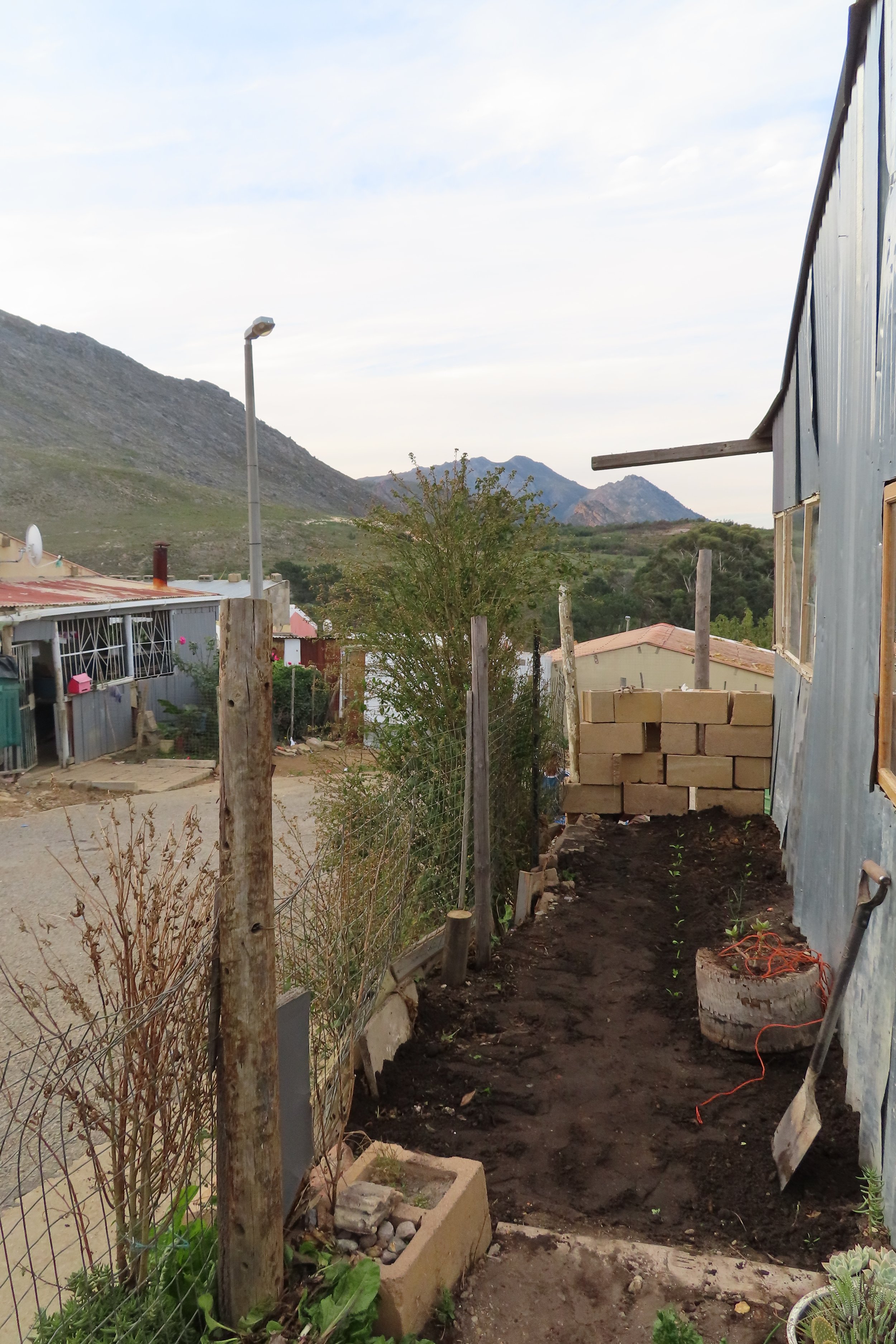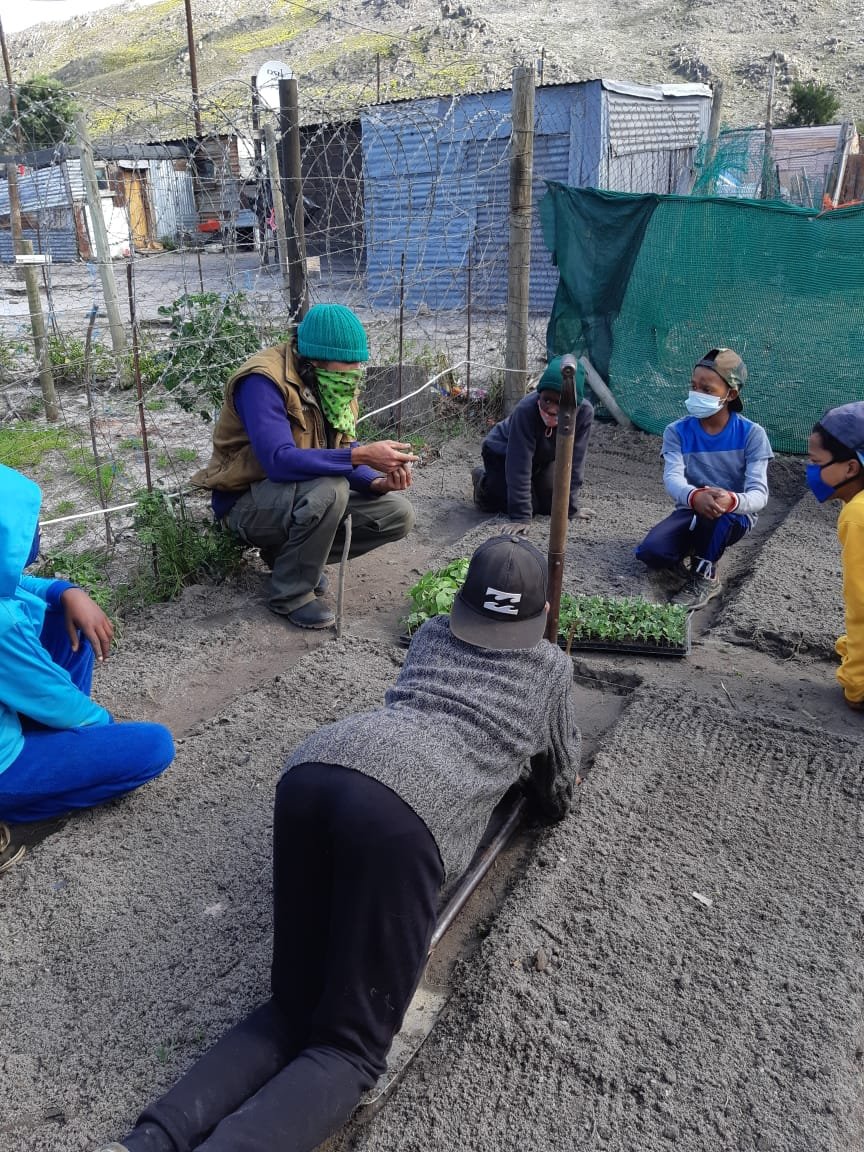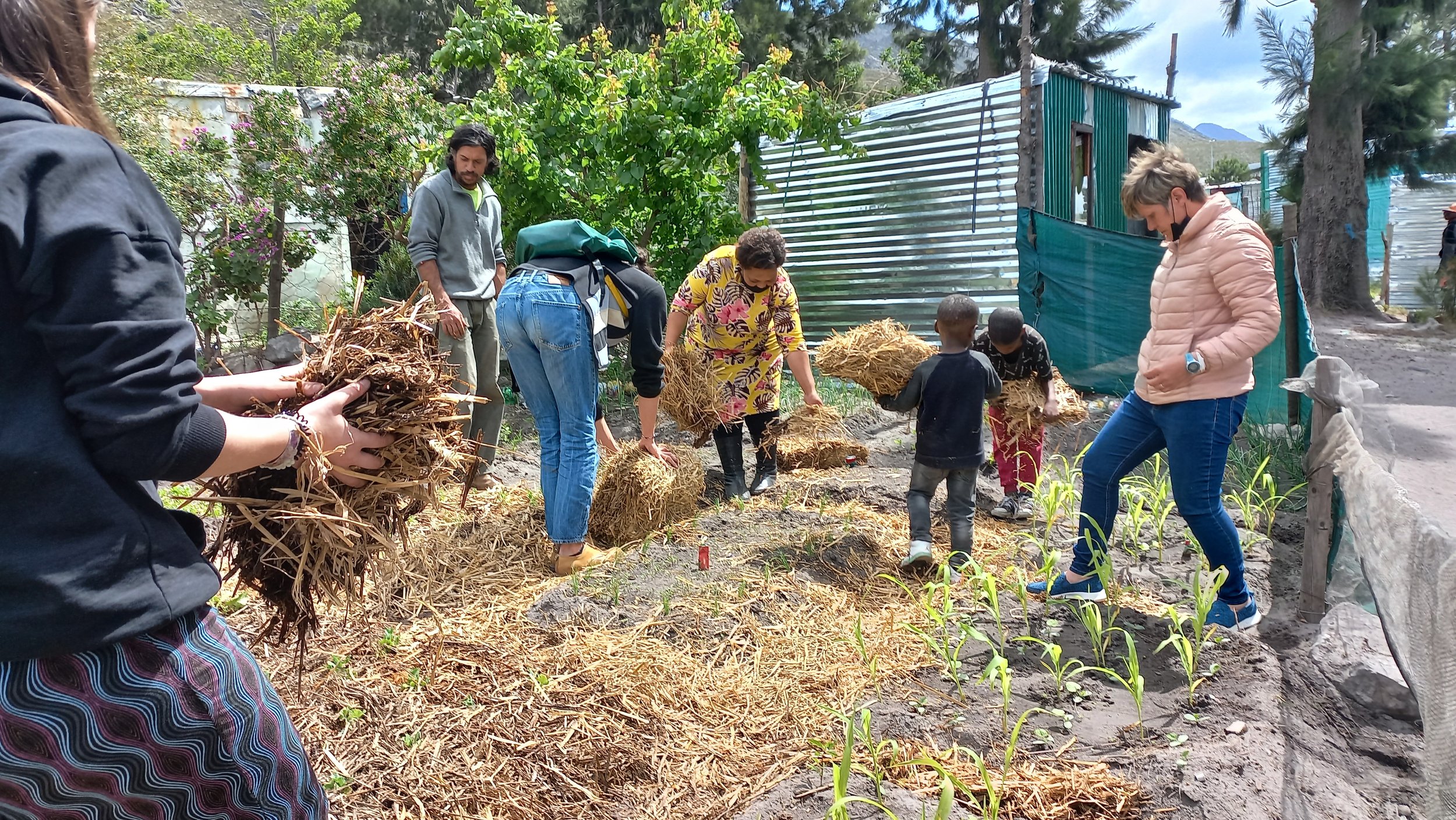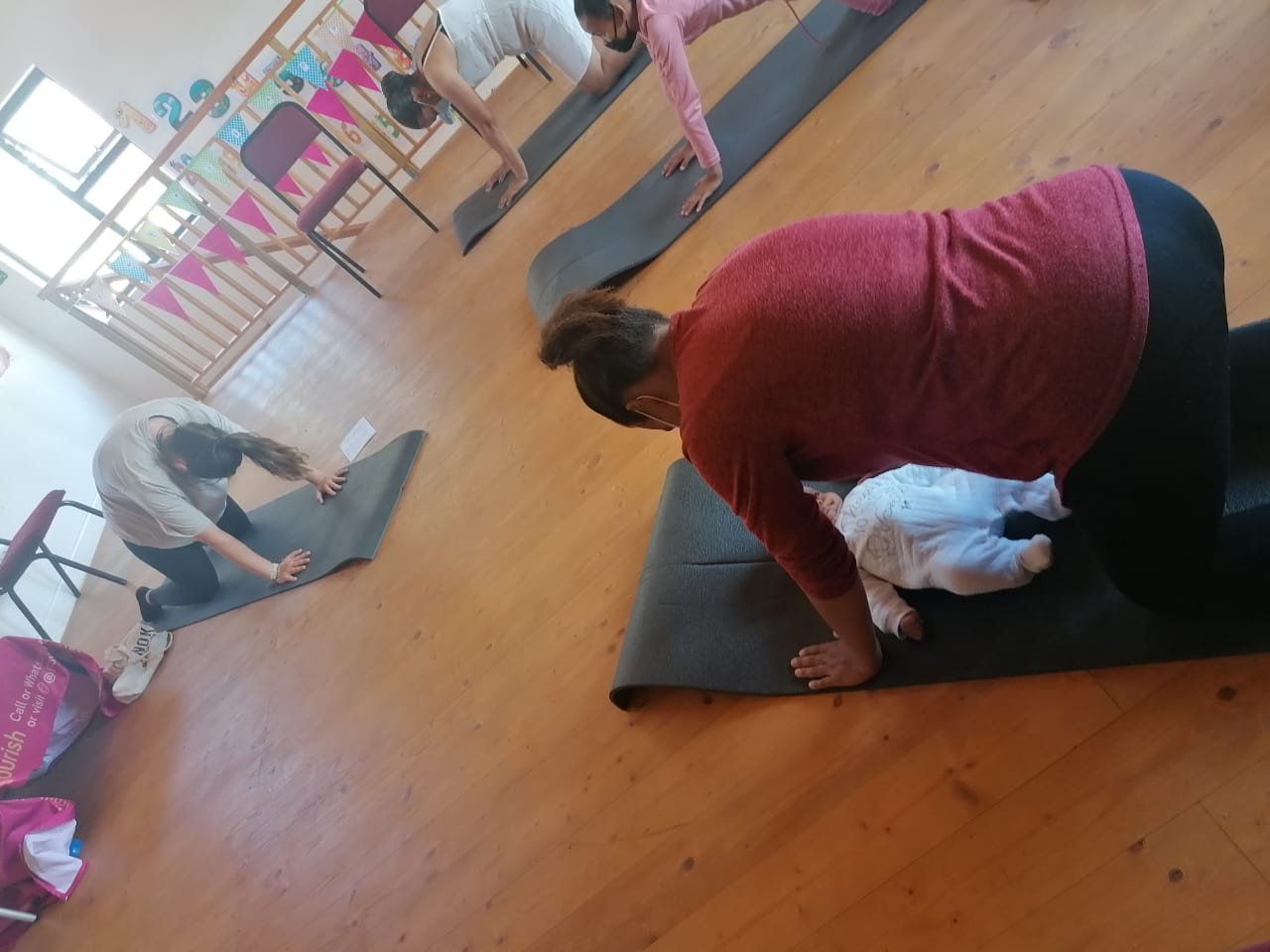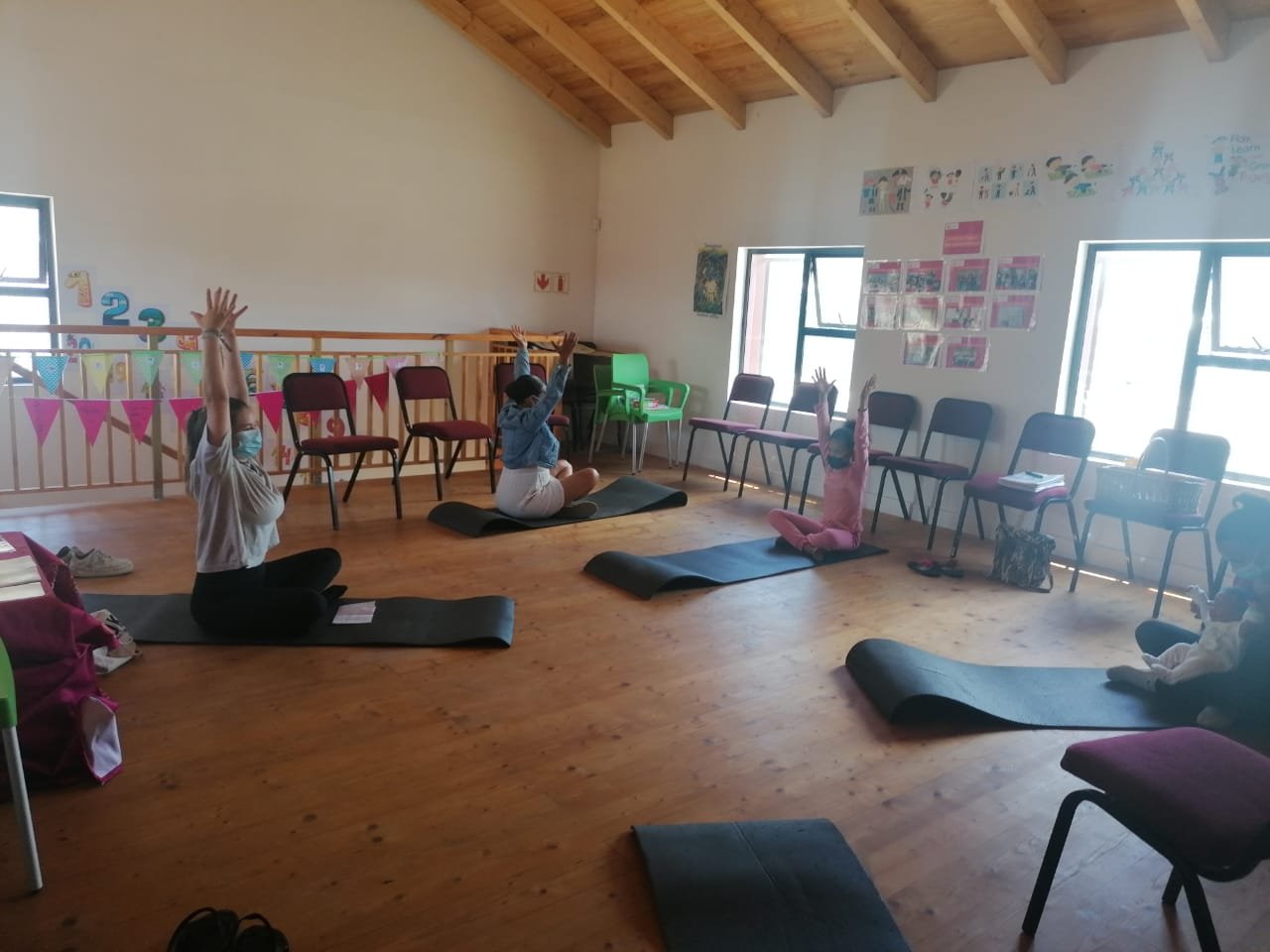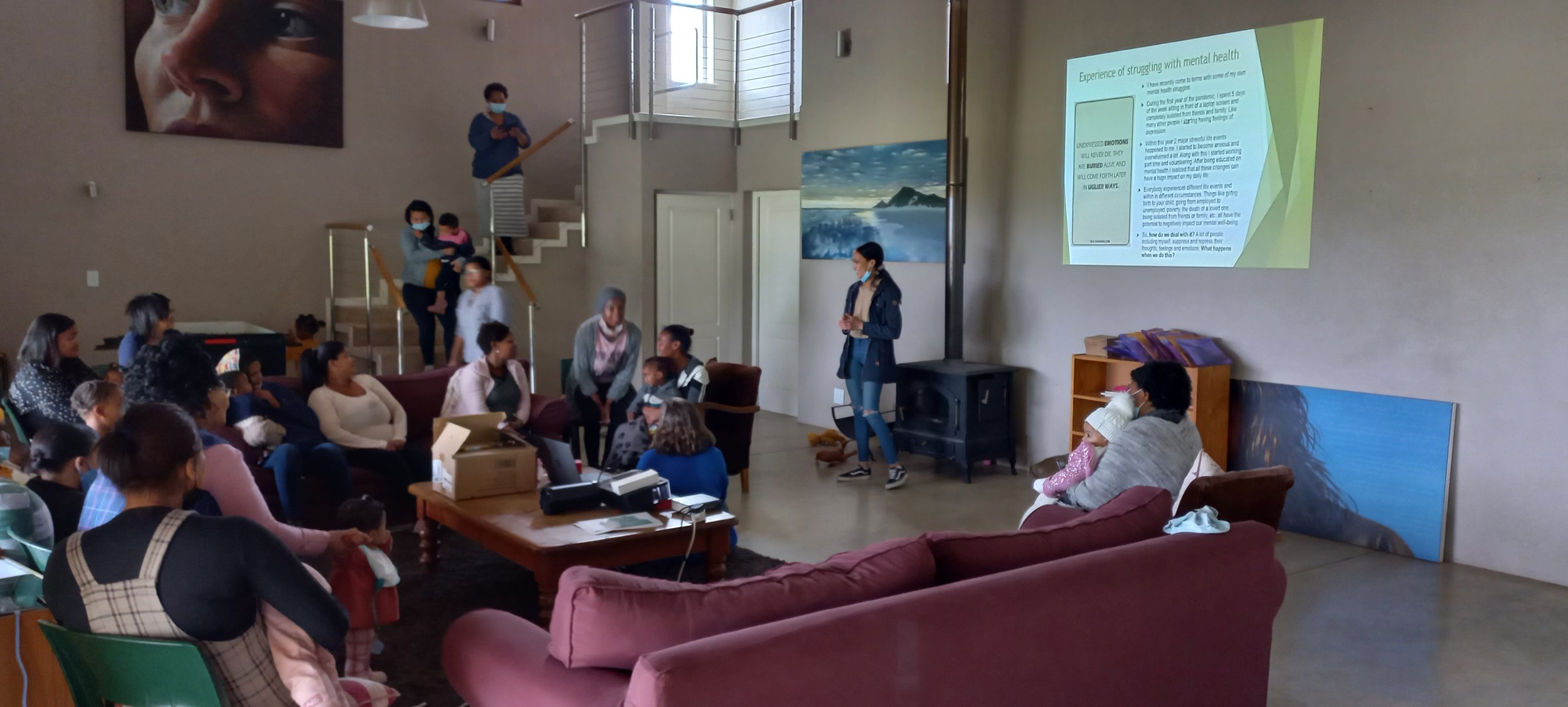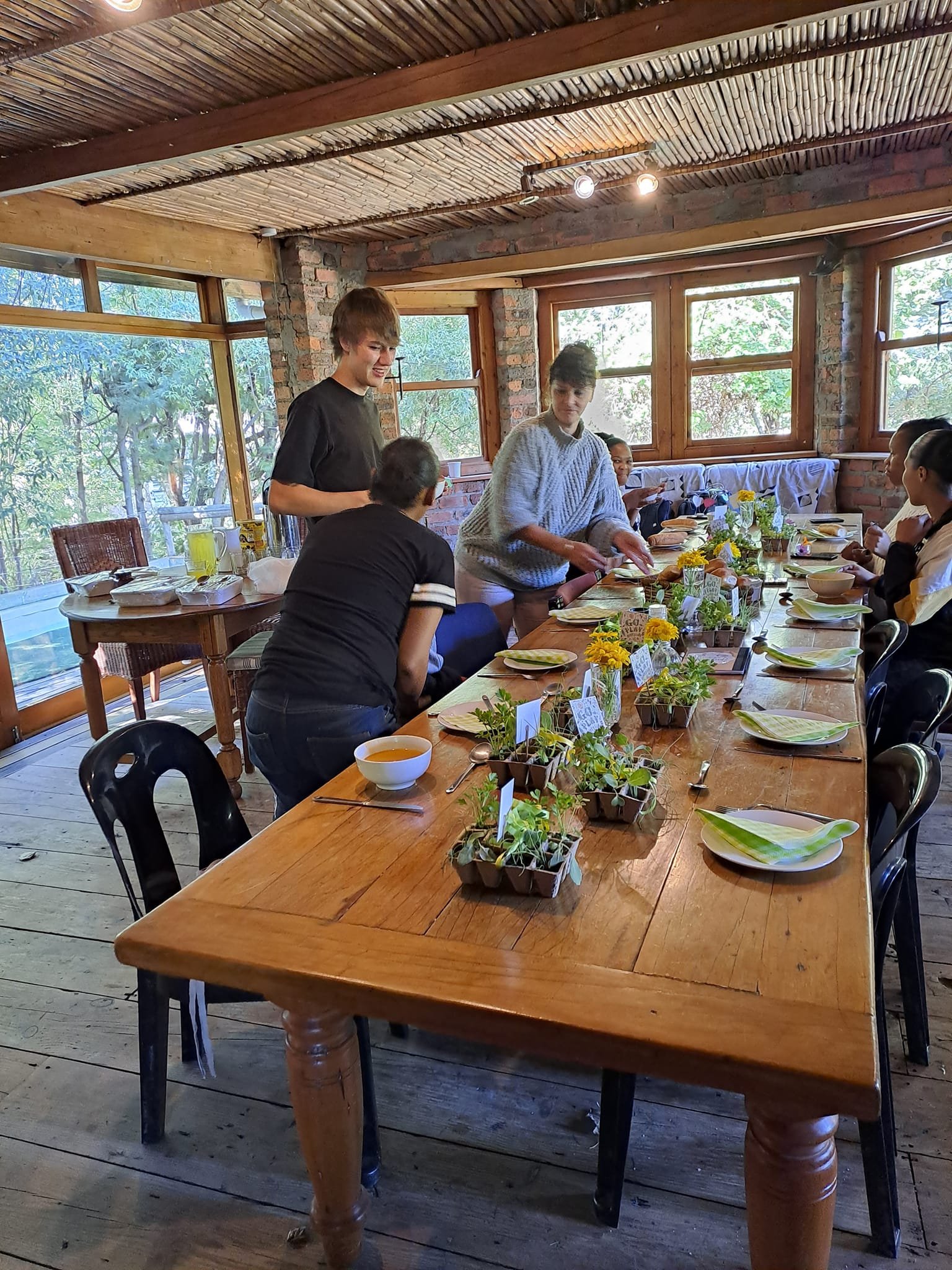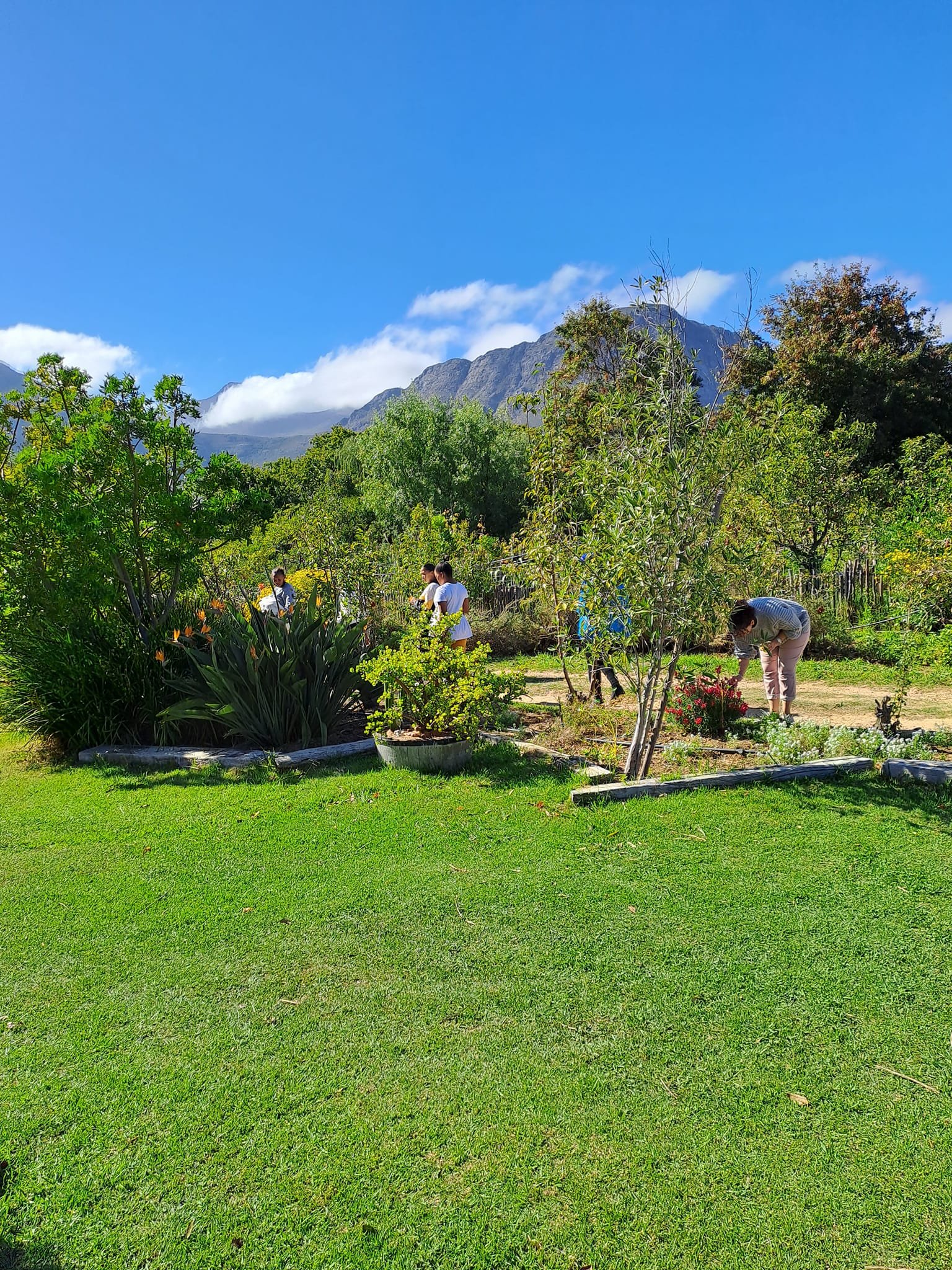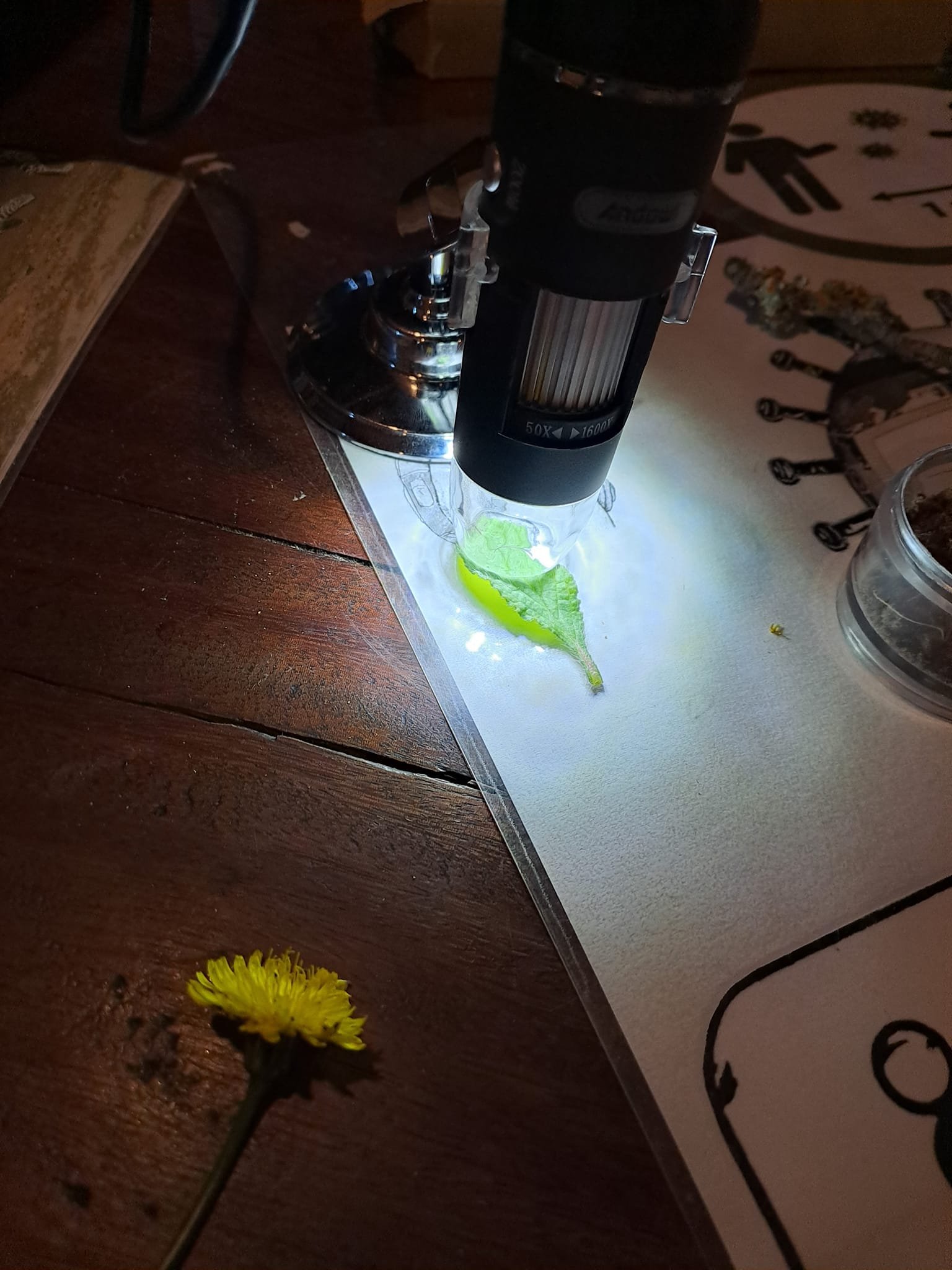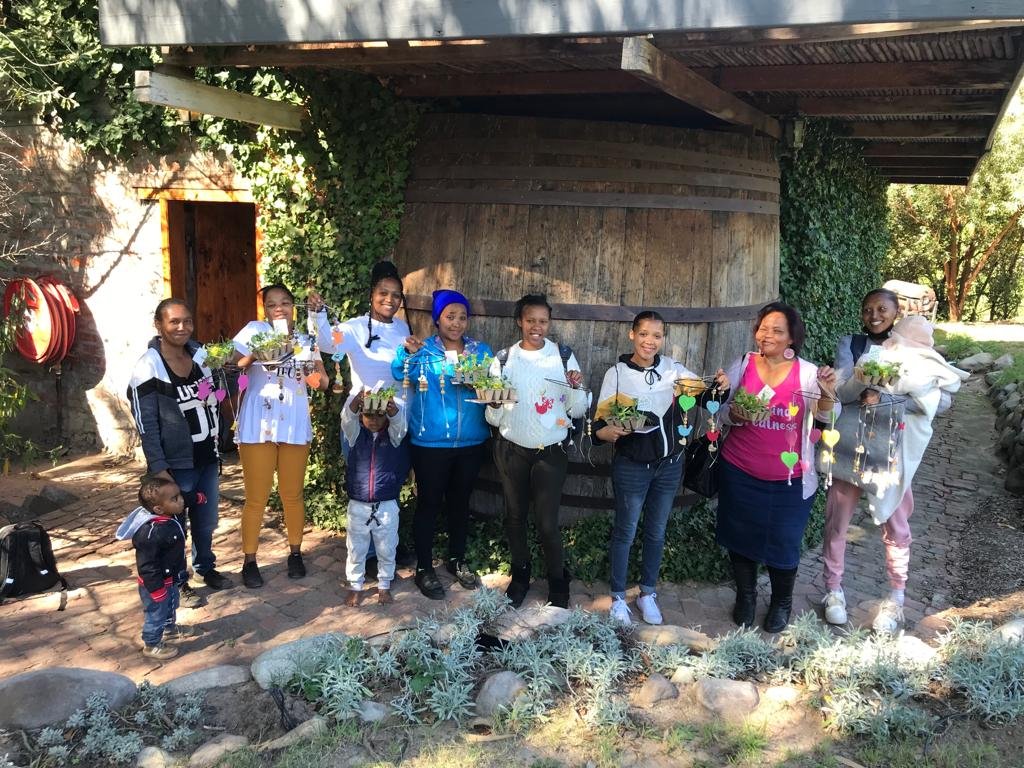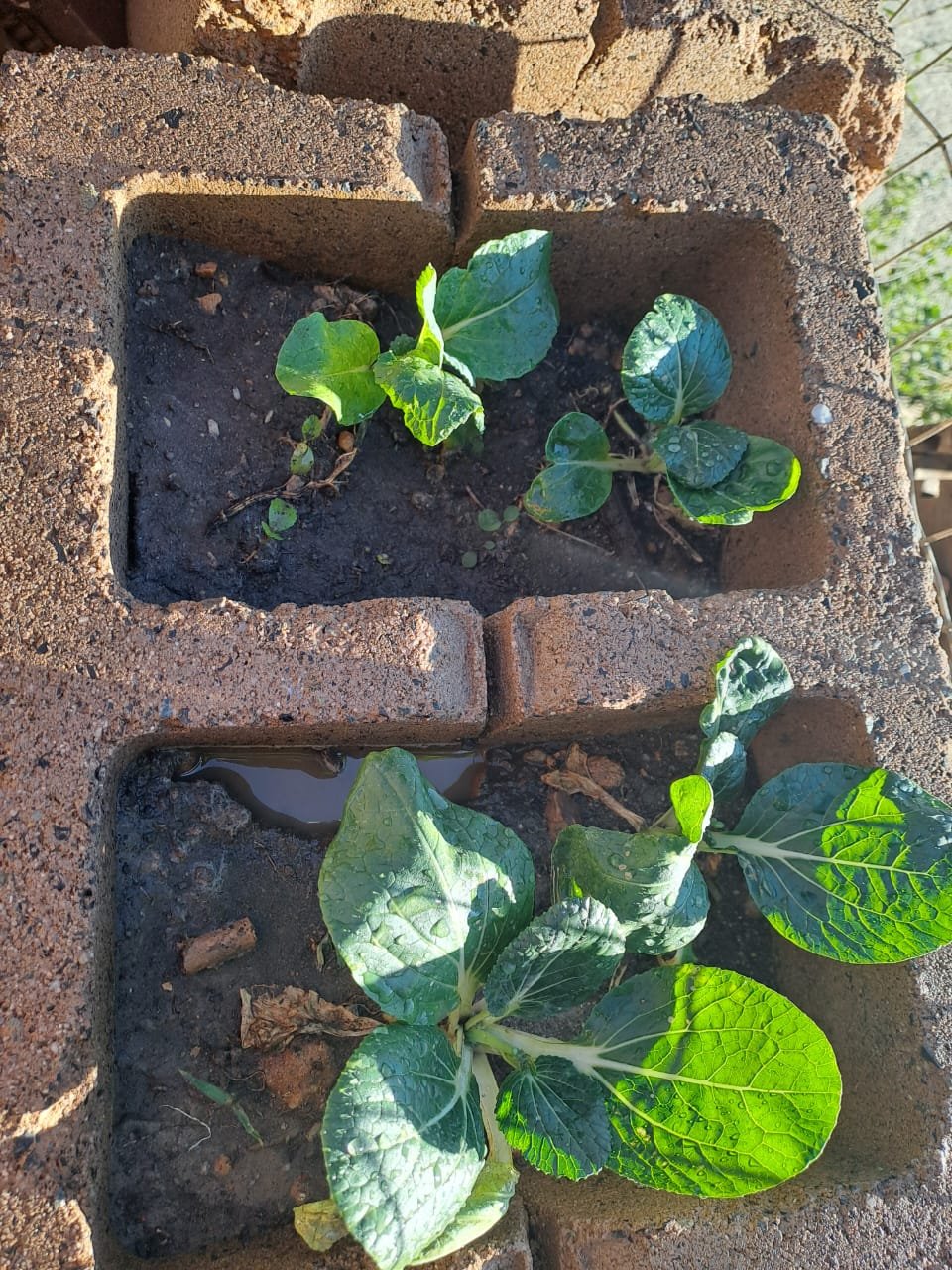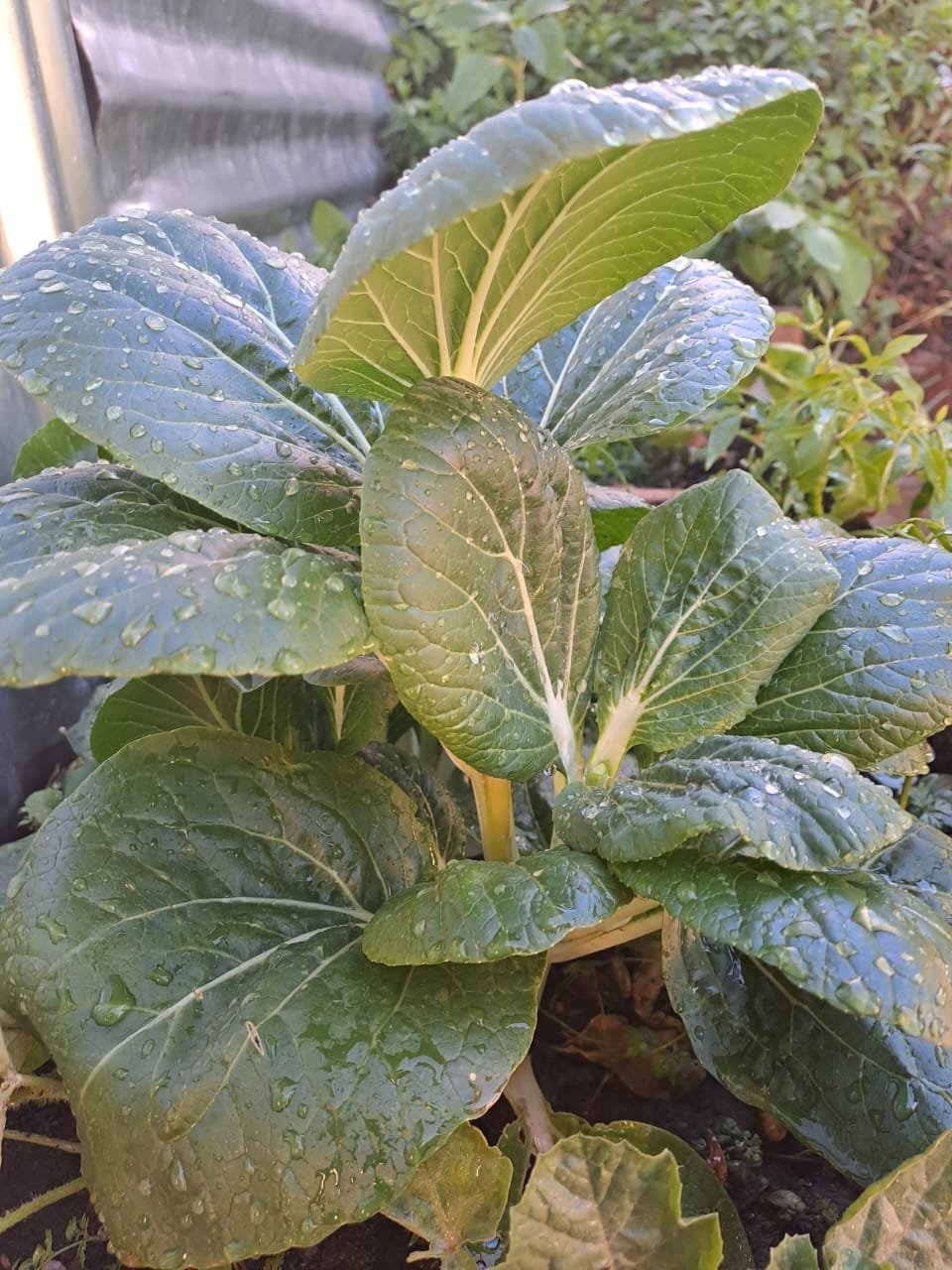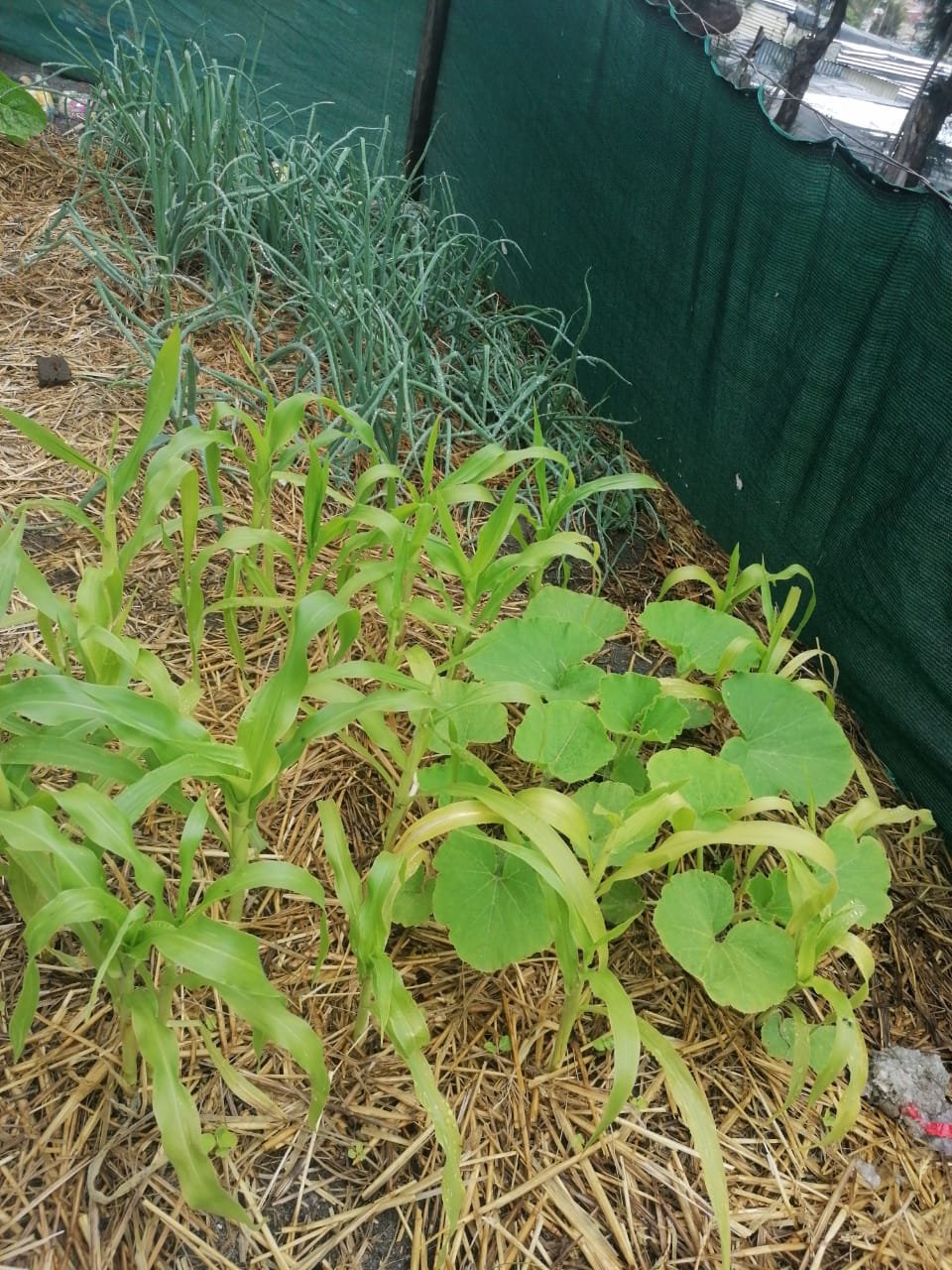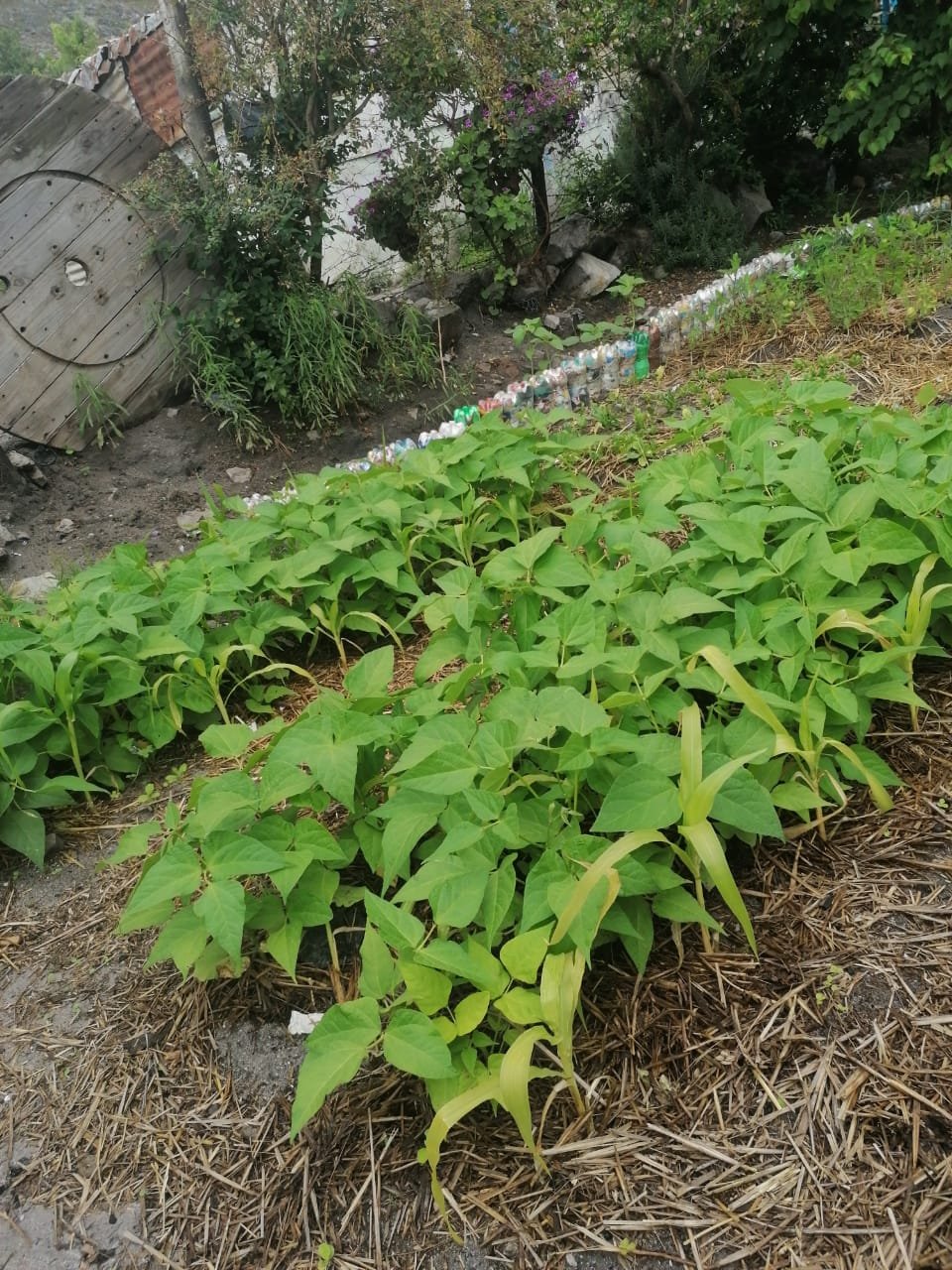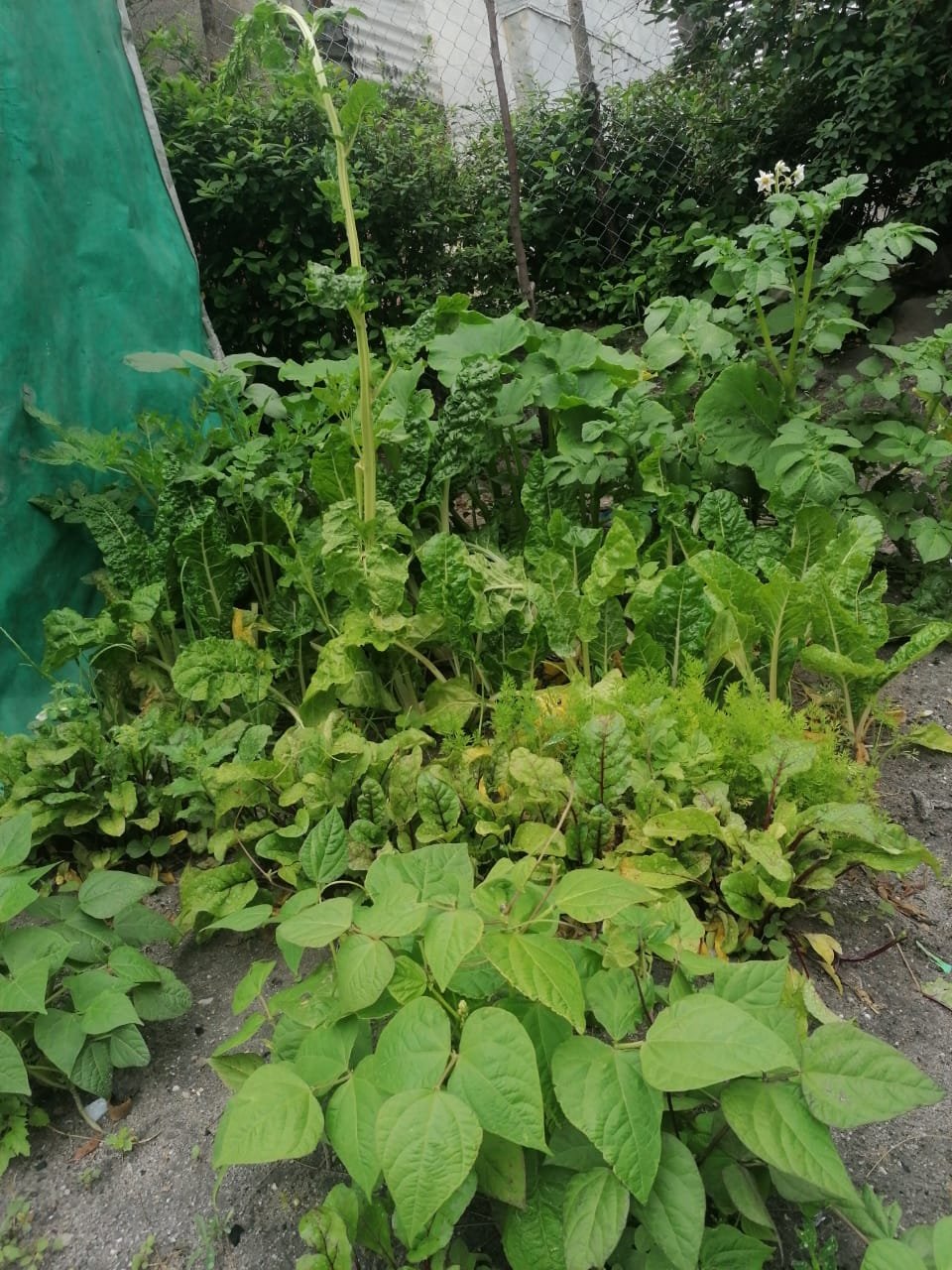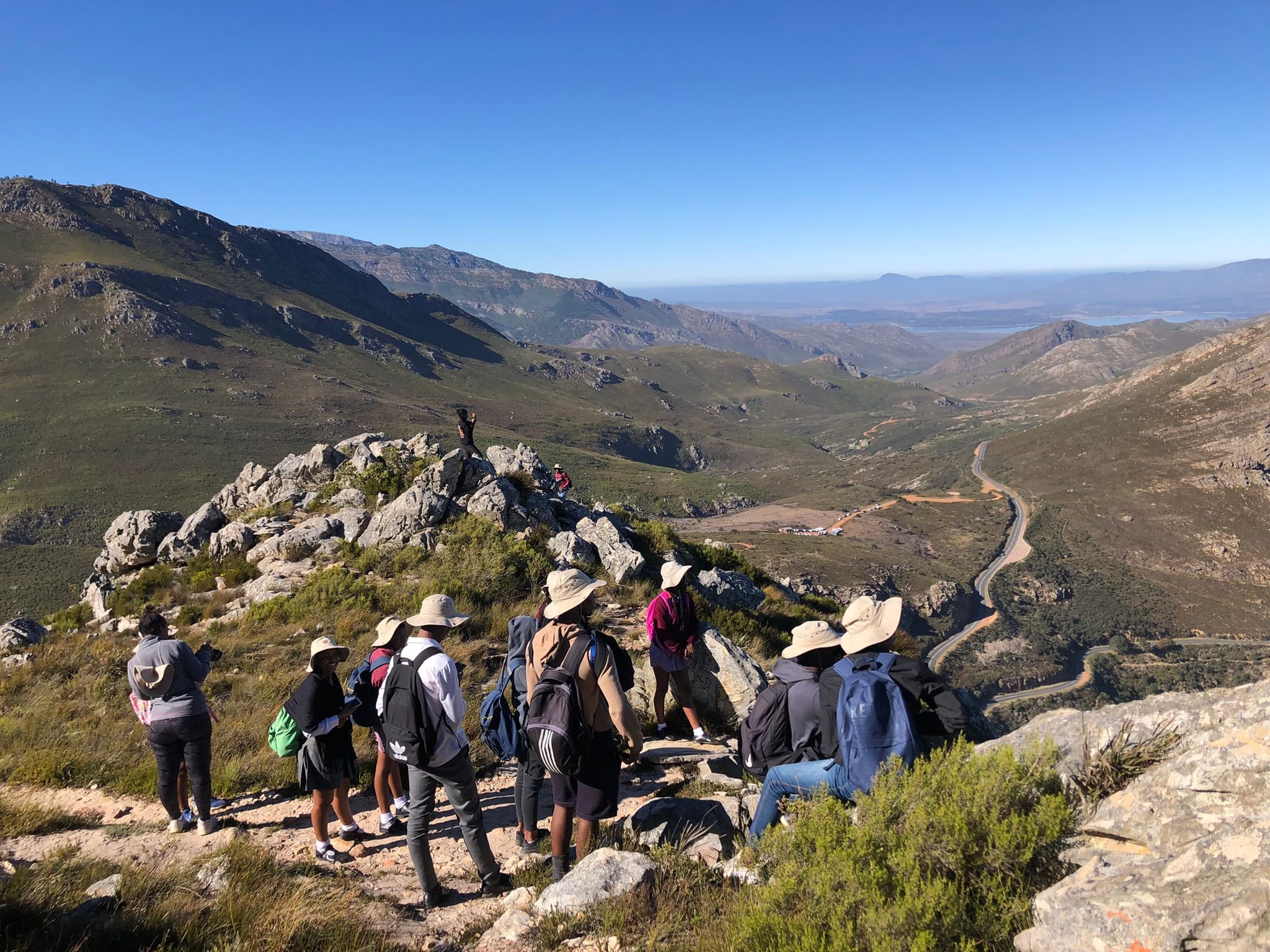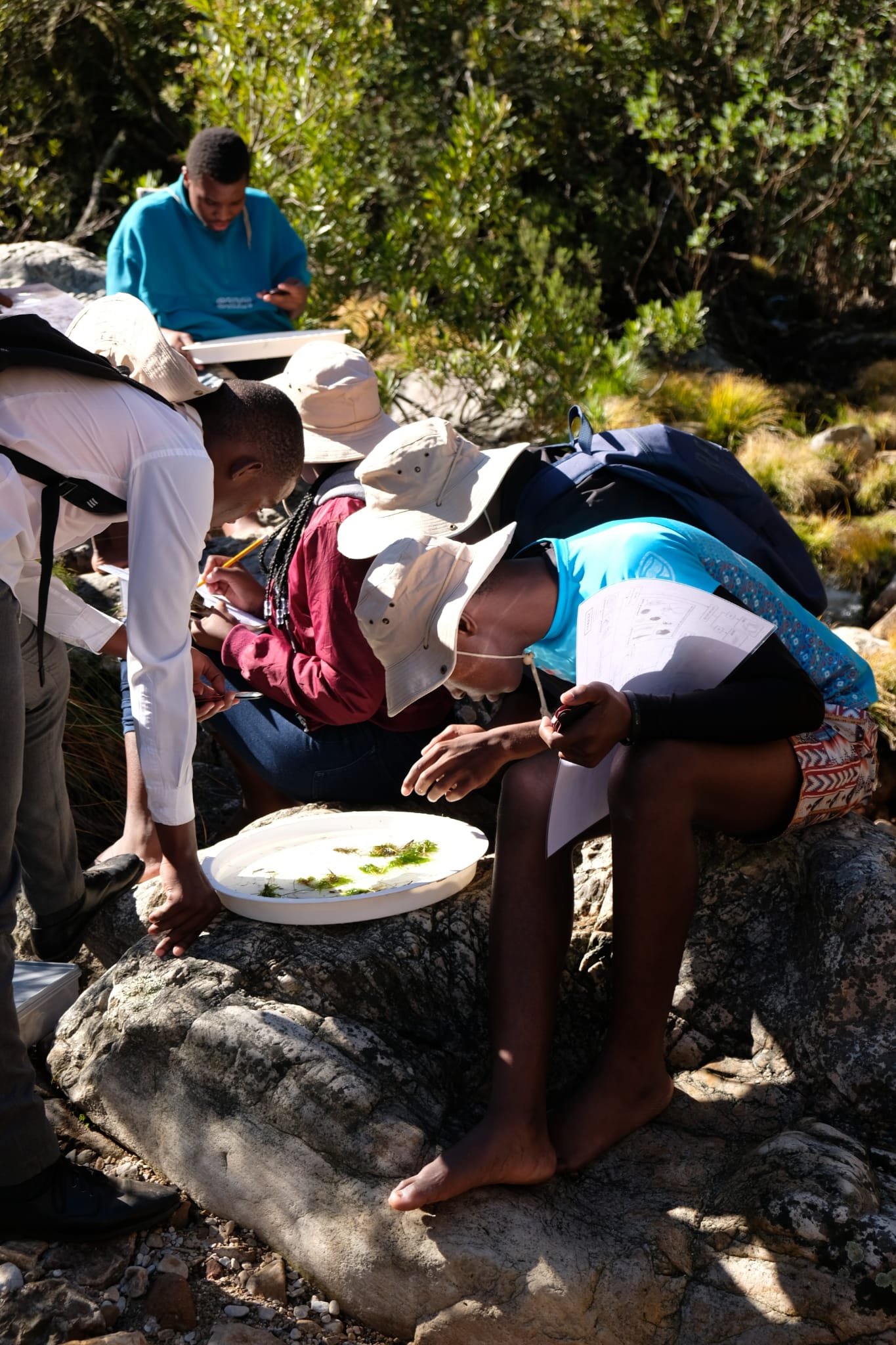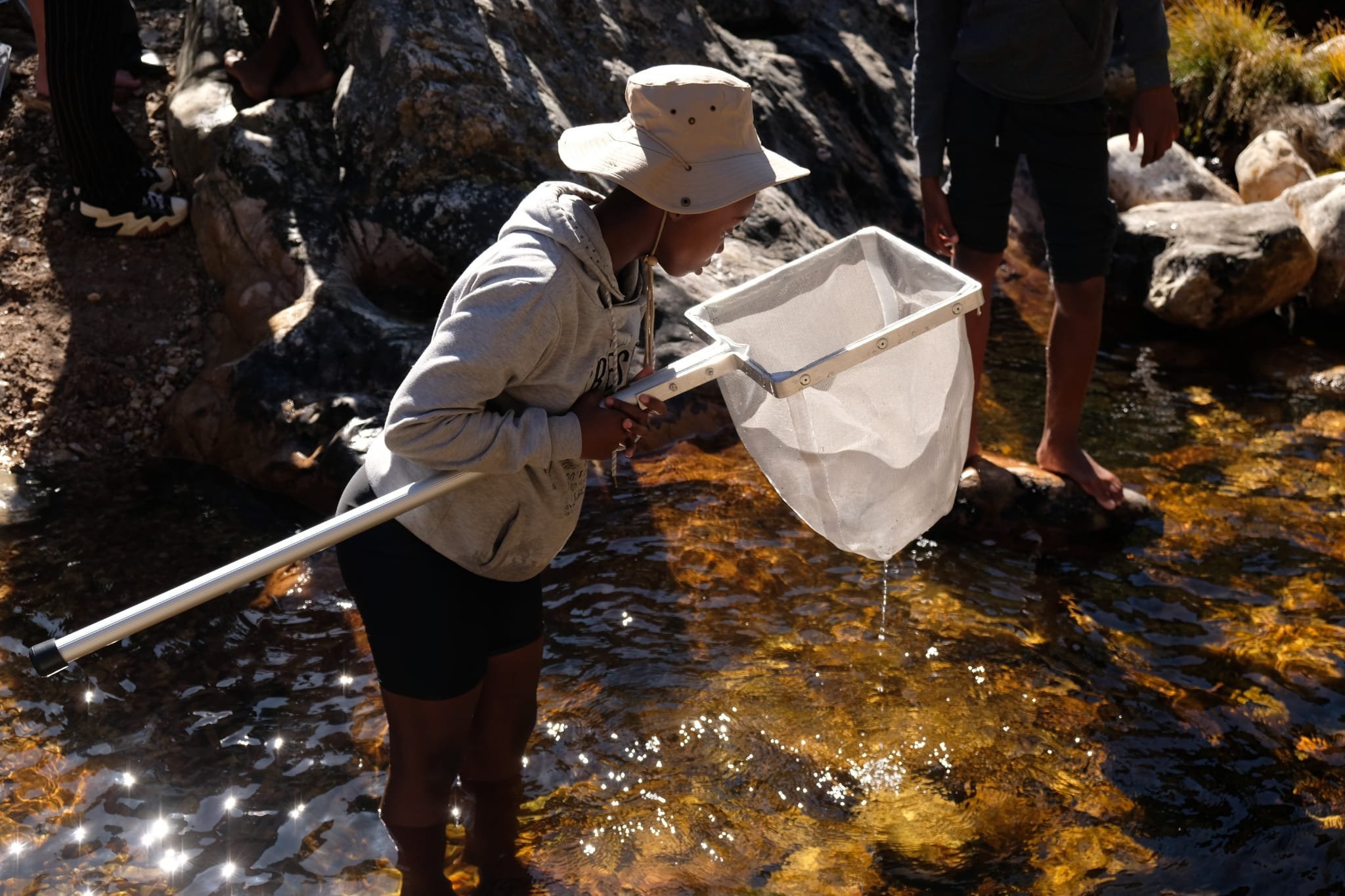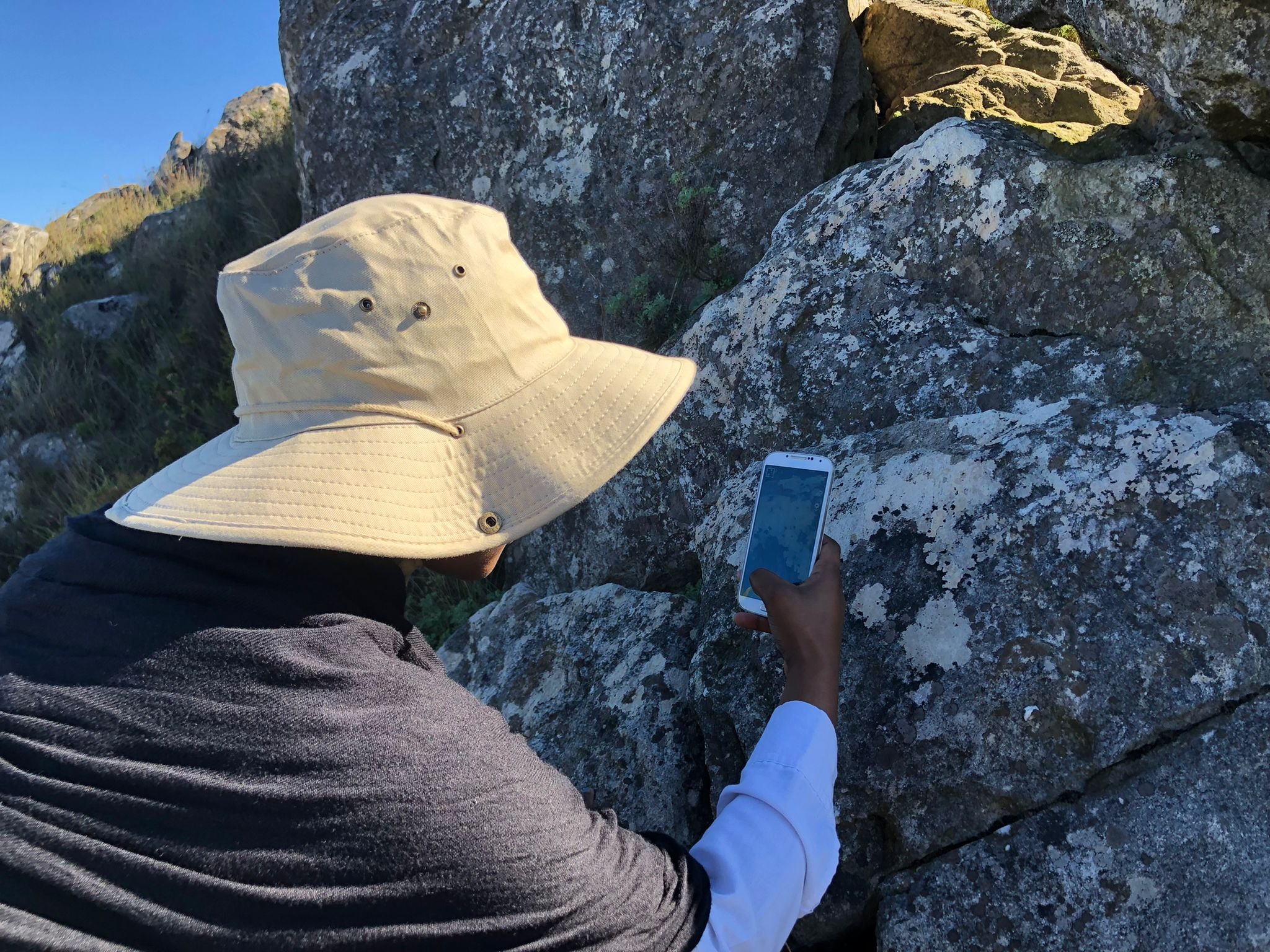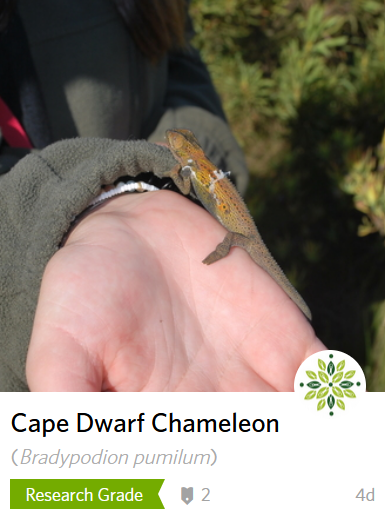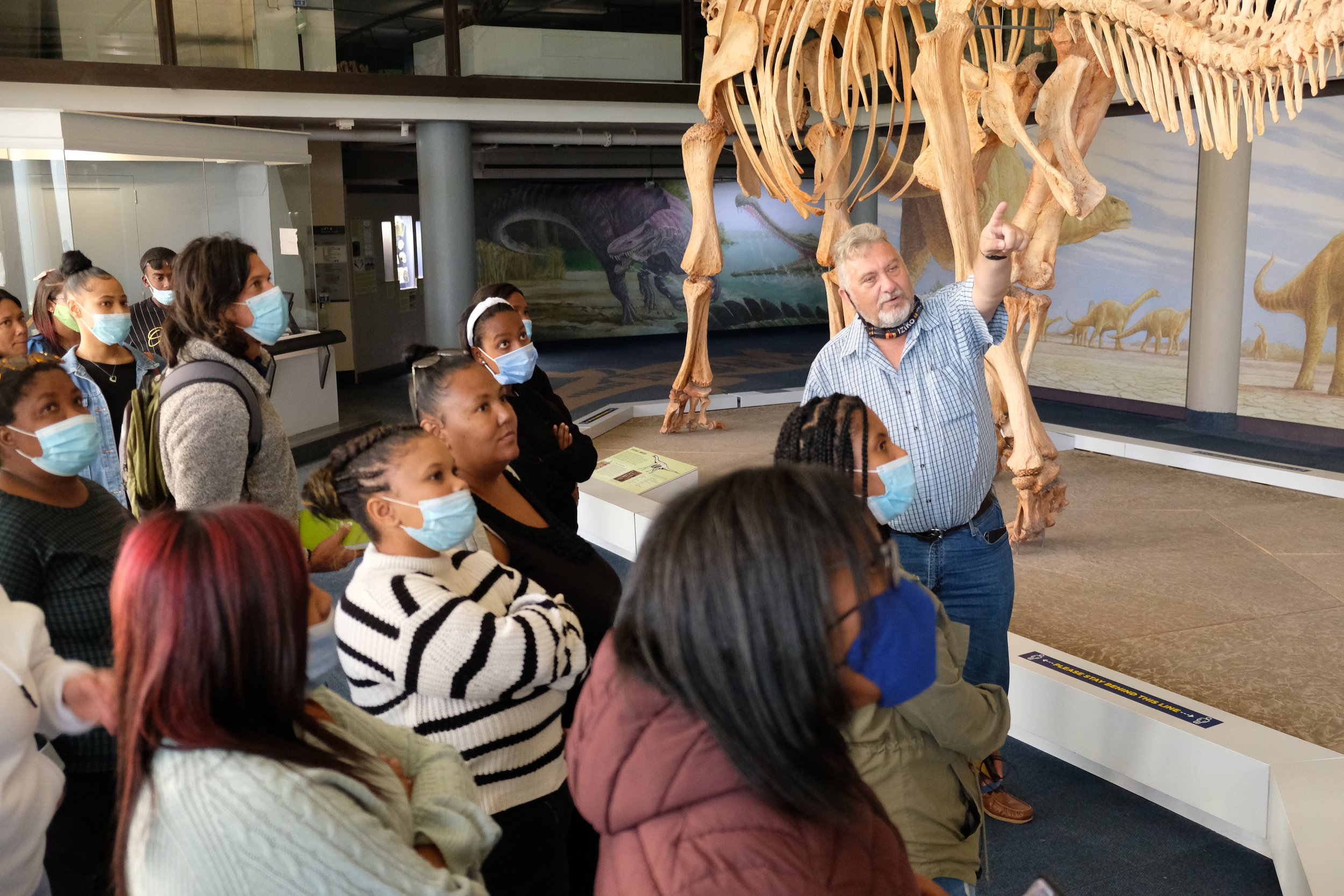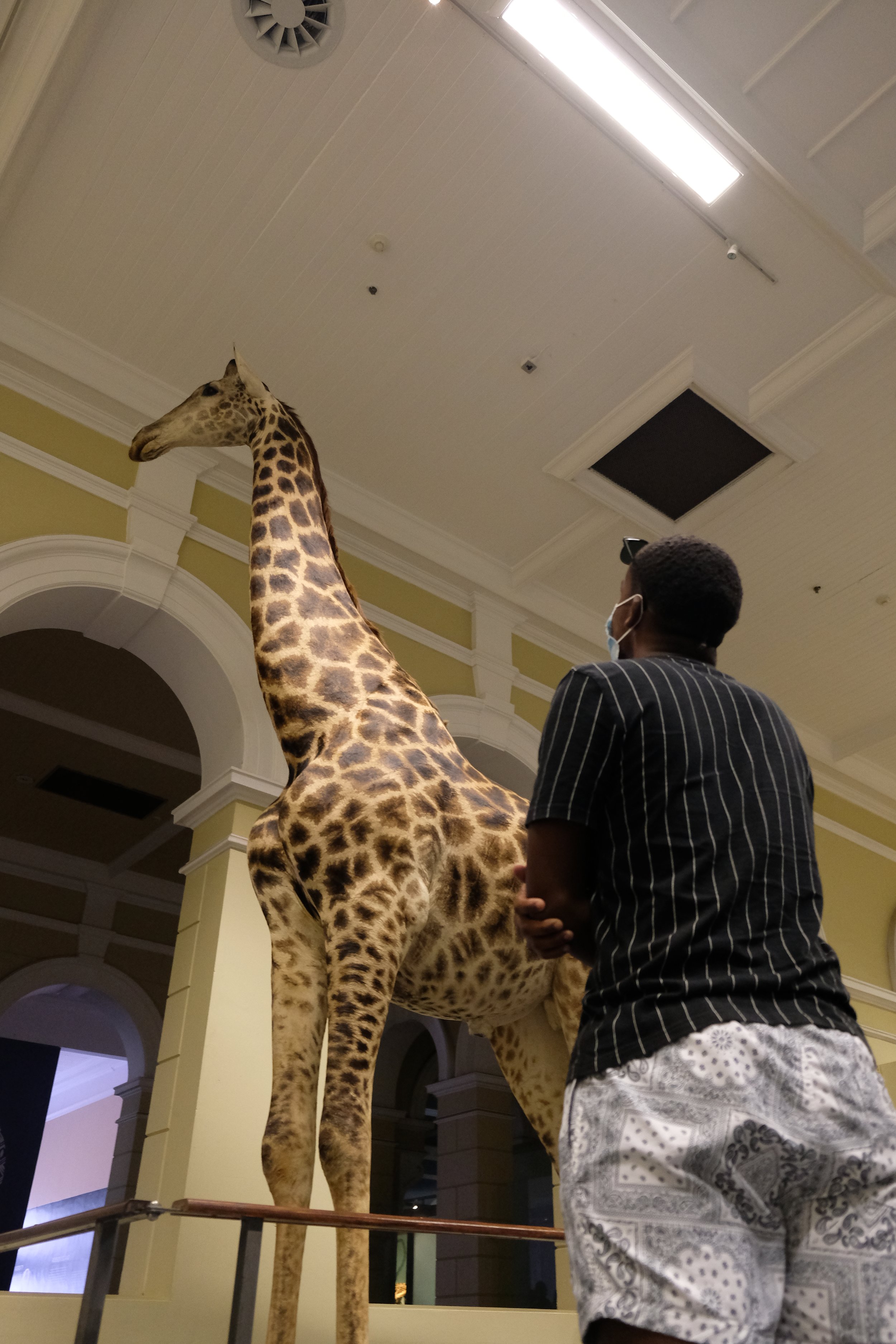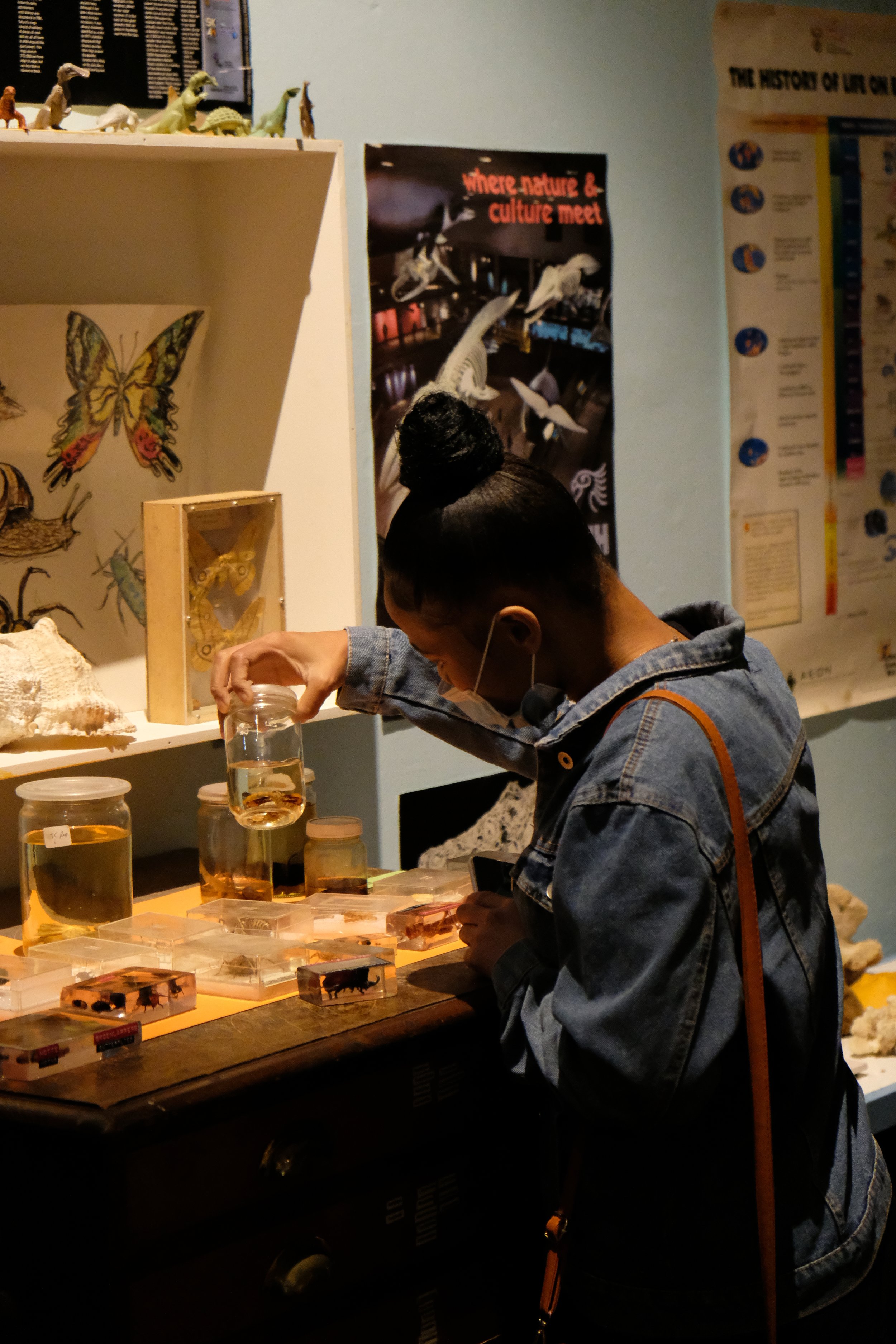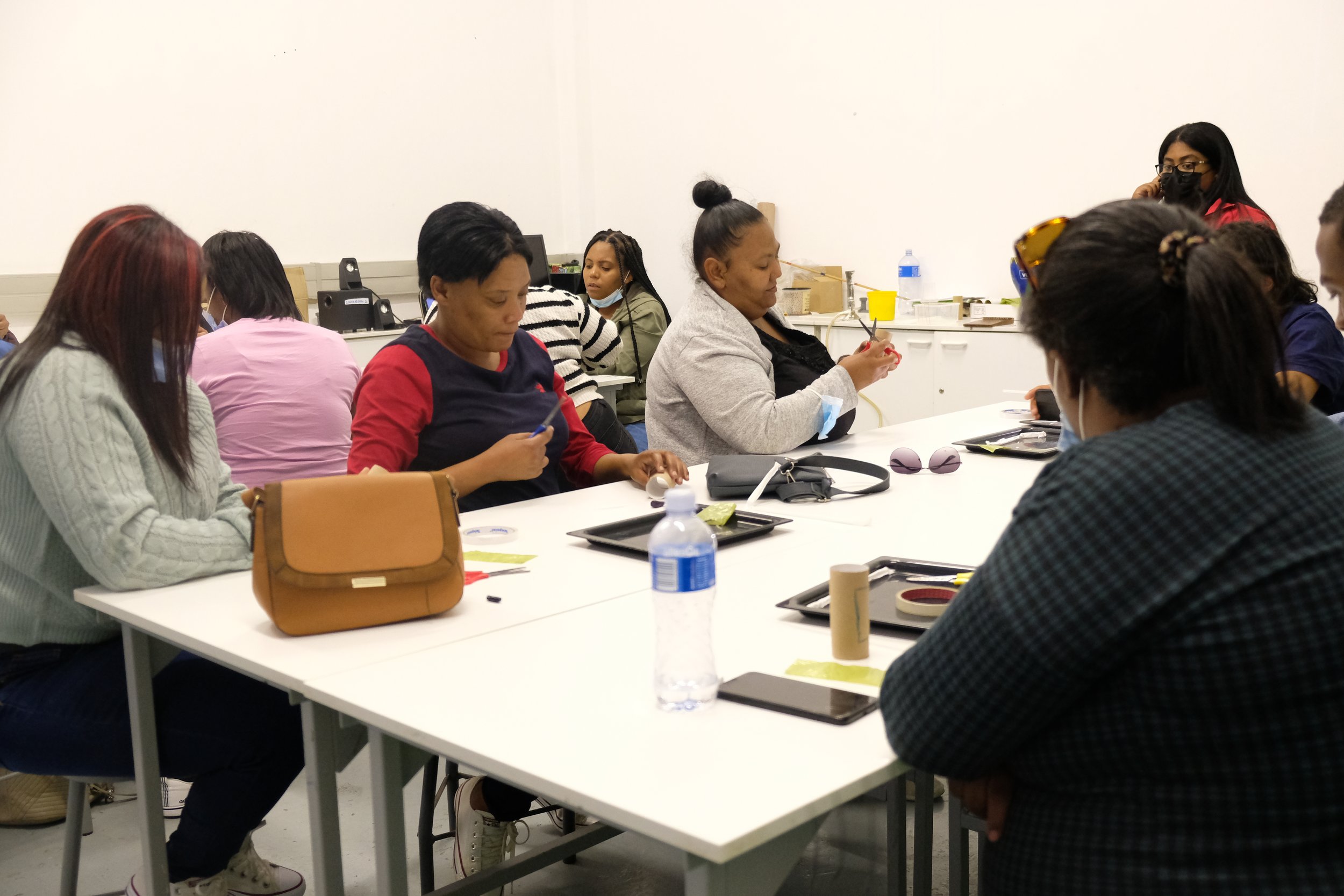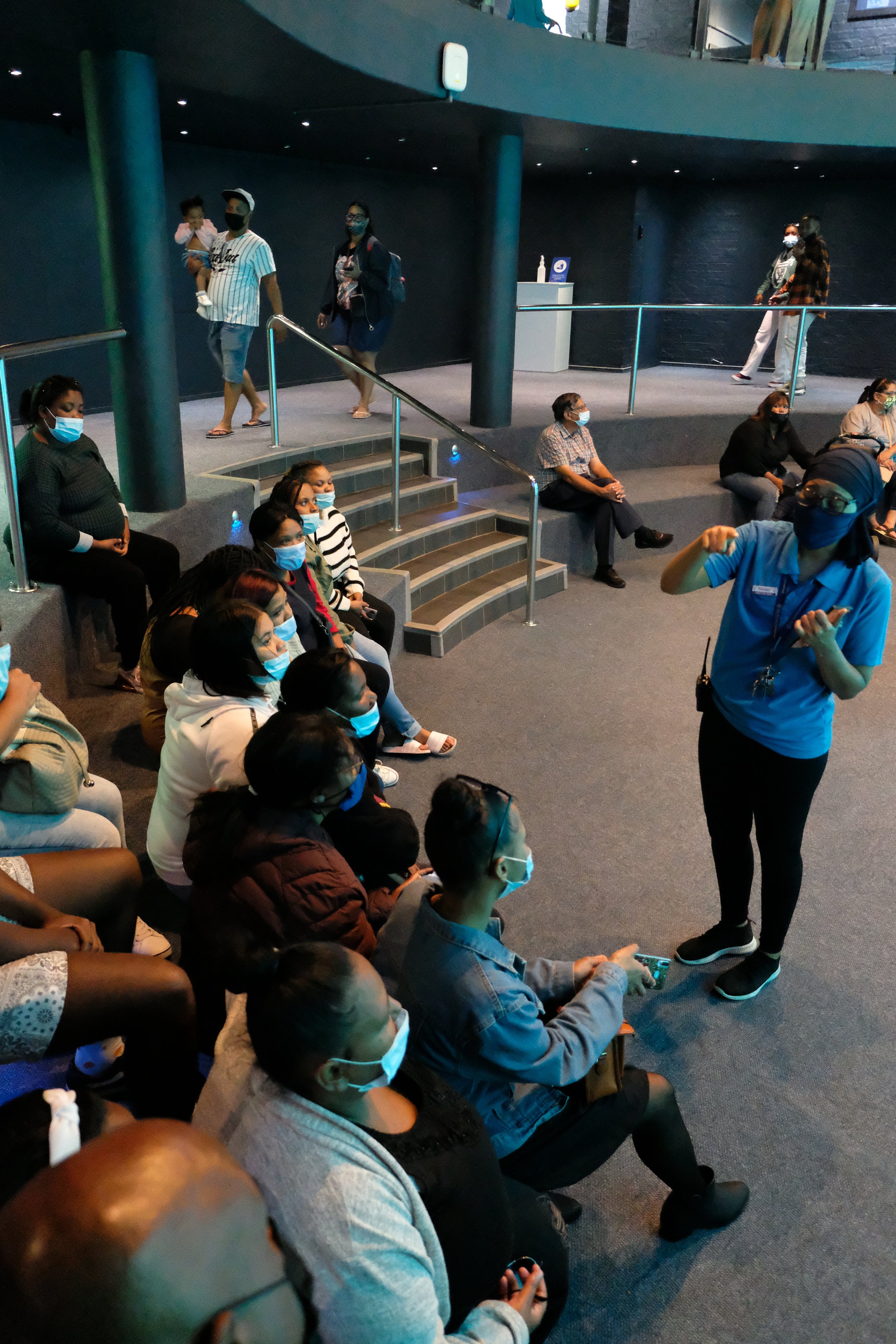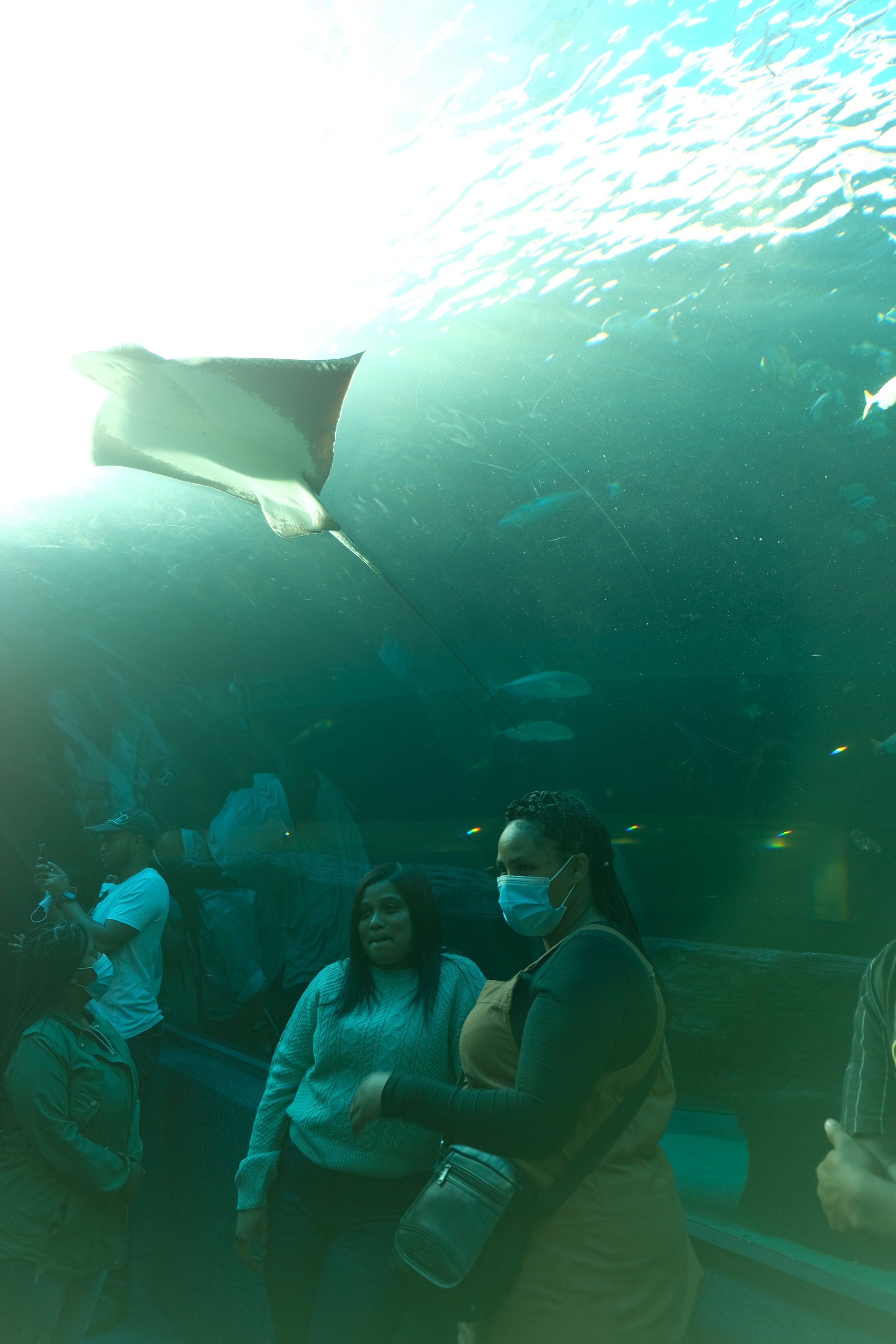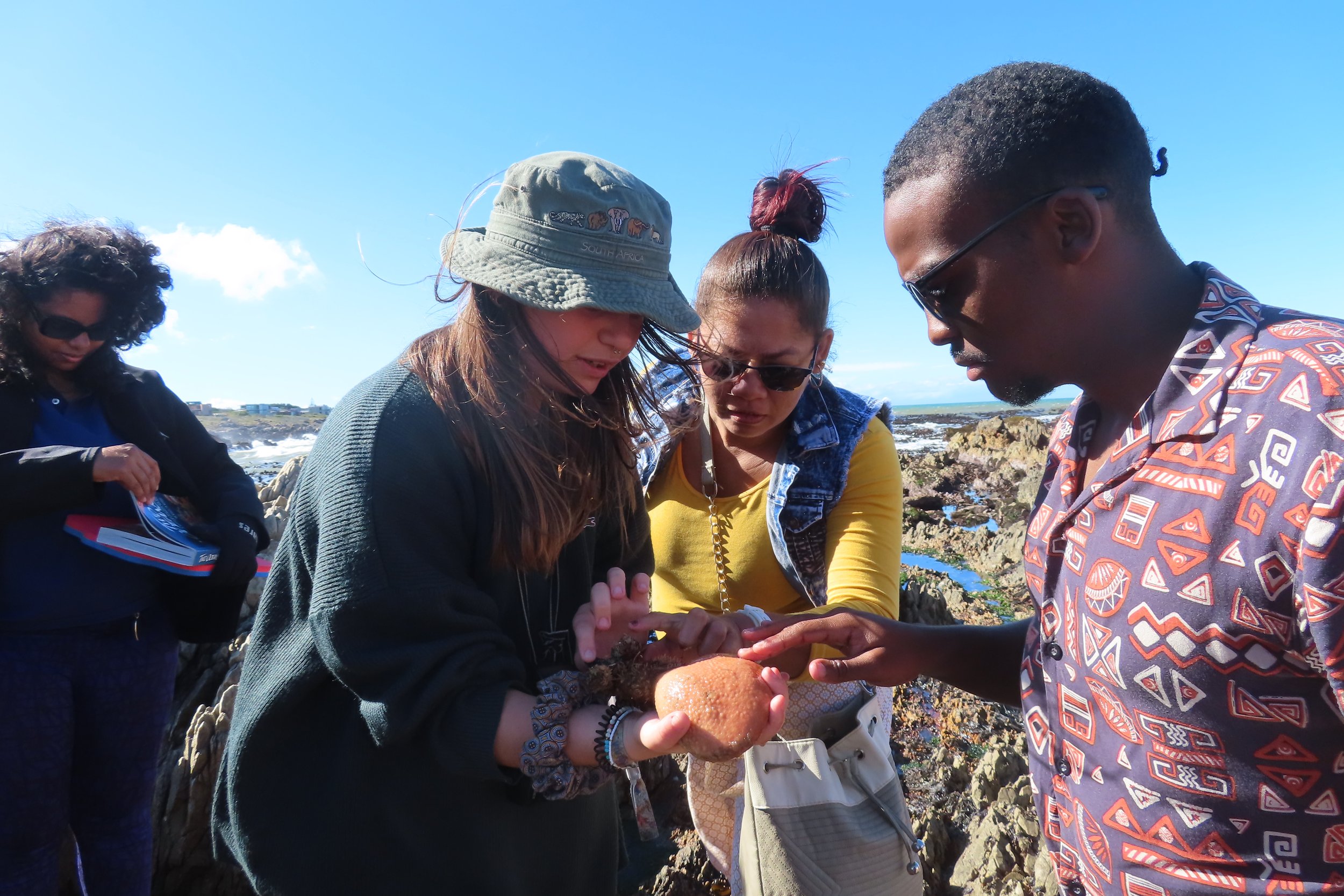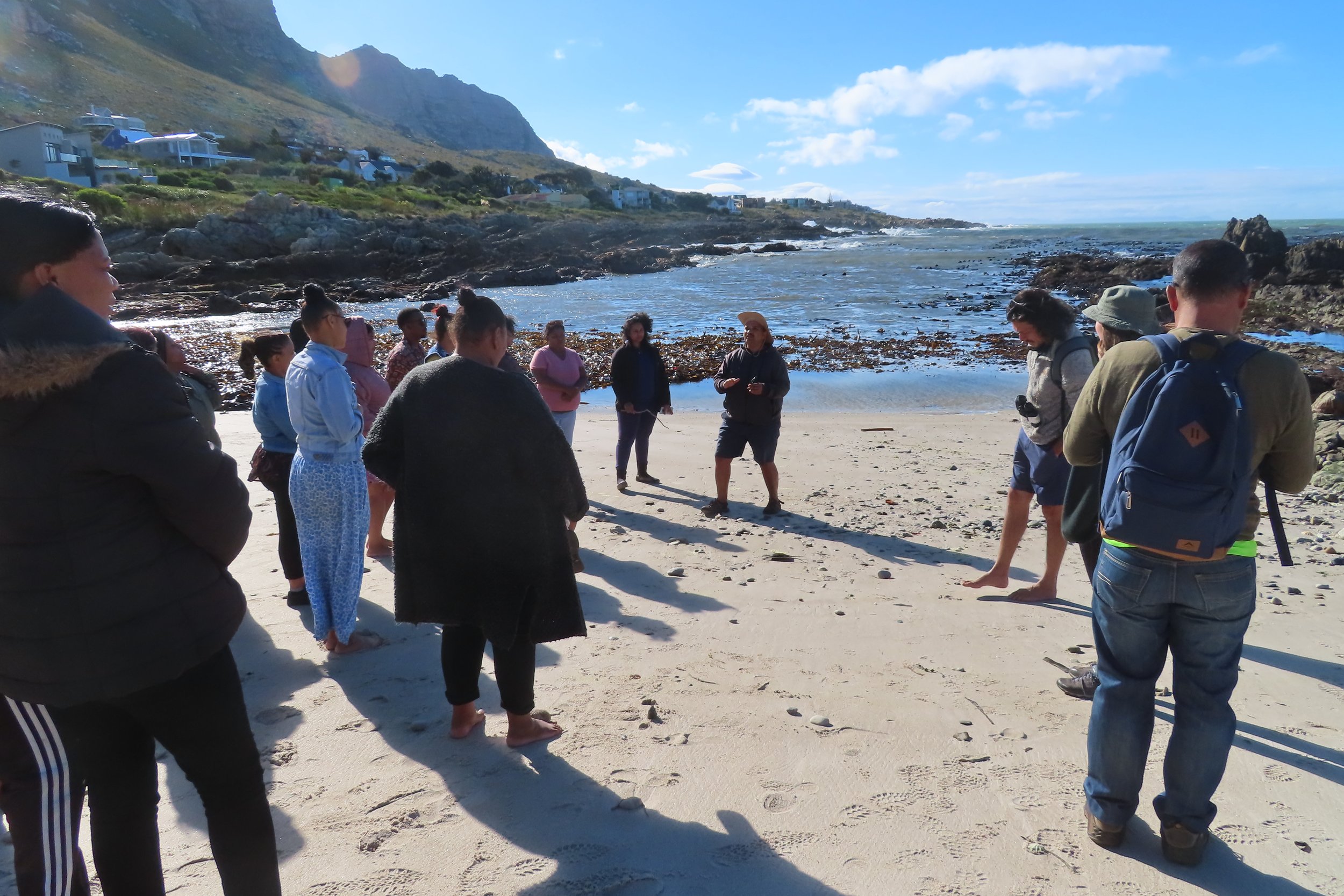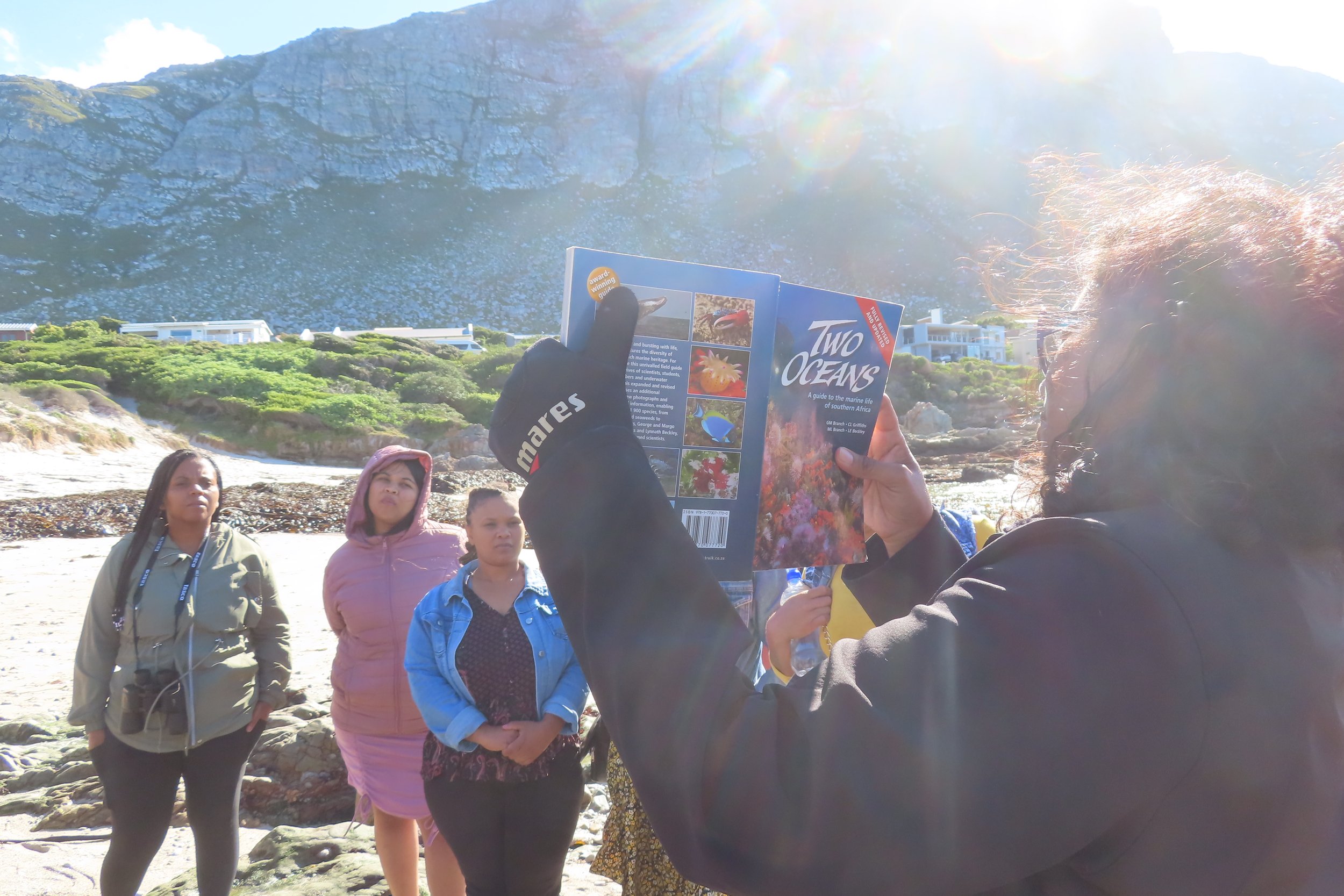The Cape Winelands Biosphere Reserve (CWBR) team has partnered with Action Volunteers Africa (AVA) to collaboratively create and implement monthly Mobile Career Cafés (MCC’s). The initiative is an opportunity for unemployed and non-studying youth (in particularly rural areas) to learn job-readiness skills and explore careers through hands-on activities and fun interactive engaging games.
“Bone-chilling statistics reveal that 65.50% of youth in South Africa are currently unemployed - and only 65% of our students are completing high school. In rural South Africa, young people are not able to access as many services as those in the cities. These young, unemployed rural youth are especially vulnerable to socio-economic exclusion - and the wider, long-term impacts to South Africa's economic and social future is deeply concerning.” Action Volunteers Africa
The CWBR mobile educational trailer STEAM-Y (Science, technology, engineering, art, and mathematics - for youth) is transformed into a one-stop-career-shop, with pop up gazebos creating multiple shaded spaces for three different sessions that the youth rotate between during a four-hour workshop. This includes two sessions by AVA: Identifying possible immediate resources to generate income, and employability skills including CV building, interview skills and preparing for the job interview. Complimentary to AVA’s sessions, are hands-on activities at STEAM-Y where CWBR facilitators and volunteers share environmental awareness through hands-on activities and a careers discovery session. Introducing youth to possible careers relevant to their area and employment opportunities in conservation.
To prepare for the MCC visit, partner NGOs are identified in the area to reach the most marginalized youth and strengthen impact and sustainability of ongoing support after the MCC has taken place.
Since June last year, nine MCC’s have reached two-hundred-and-fifty-four youth in Wolwekloof (Wolseley), Caledon, Swellendam, Darling, Khayelitsha, Atlantis, and Haut Bay. Two awareness workshops, in partnership with CapeNature, have been held for thirty Community Development Workers at Wolwekloof Day Camp (Wolseley) and Assegaaibosch Nature Reserve (Stellenbosch), sharing the educational resources that AVA and the CWBR have available.
Youth learn while having fun and all have stayed until the end of the Workshops, rain or shine!
97% of youth felt confident that they now know how to prepare for a job interview; compared to 46% who knew what to say and do in a job interview at the start of the workshops.
86% could identify potential employers and learning opportunities in their communities; compared only 15% prior to attending the mobile career café.
64% was very confident that they could identify and list their skills and experience on their CV at the end of the workshops, compared to 30% at the start.
In response to the question, “I am interested in learning about the environment and nature”, 35% of the participants who attended the MCC in Atlantis (June 2022) strongly agreed at the start of the event and 12% were not interested in nature at all. At the end of the workshops that day, 82% strongly agreed that they were interested in the environment and nature. There was not one not interested in learning more about the environment at the end of the MCC.
Check out the below videos to see the first Mobile Career Café Workshop which took place in Worcester, for Youth Day, June 16th, 2021. This year, the CWBR team and AVA got together on the 16th and 17th of June, to celebrate the Mobile Career Café’s first birthday, and facilitated Workshops in Darling and Atlantis, reaching seventy-two youth.
Mobile Career Café Darling 2022. Action Volunteers Africa is a non-profit organisation that empowers youth to be ready for the world of work.


